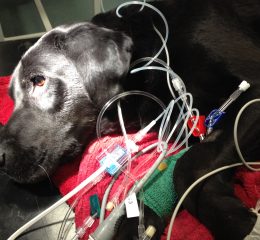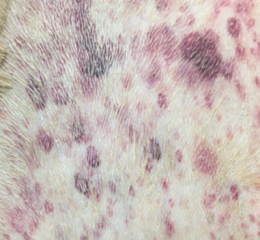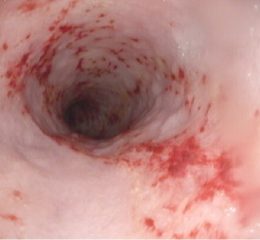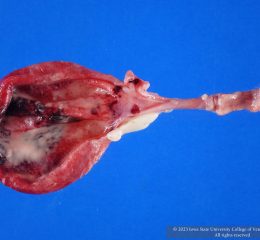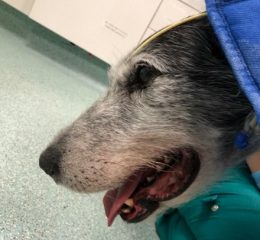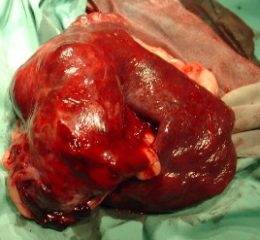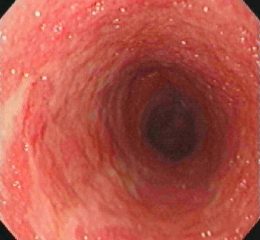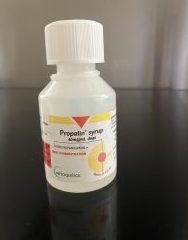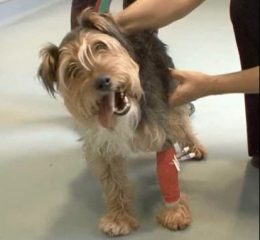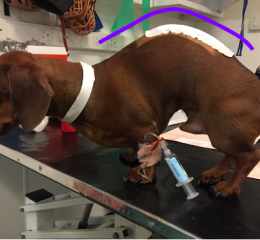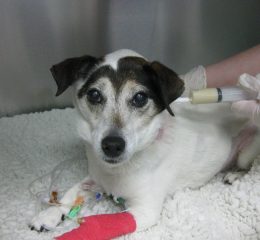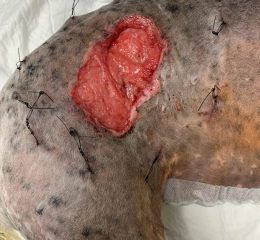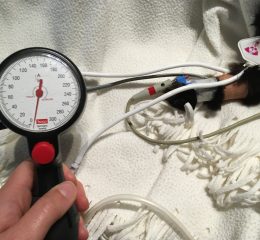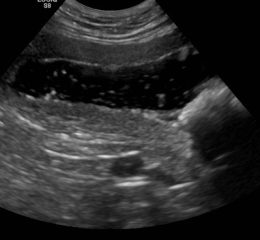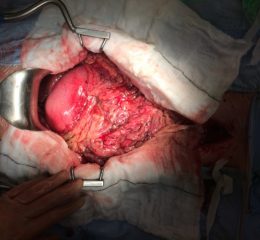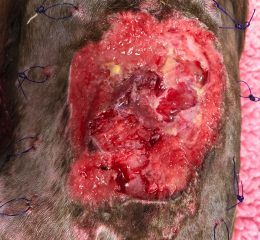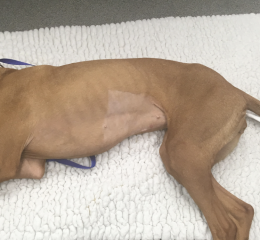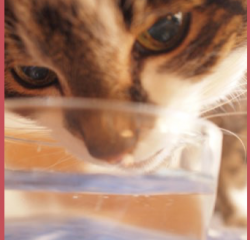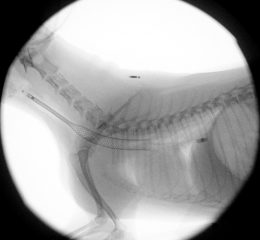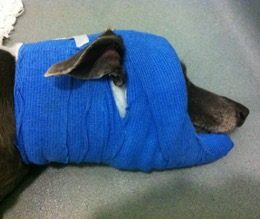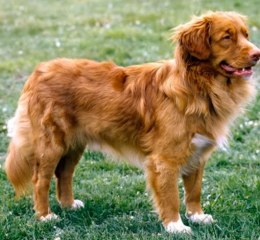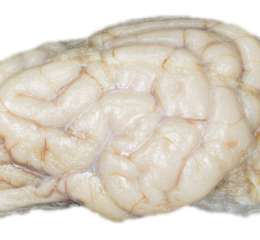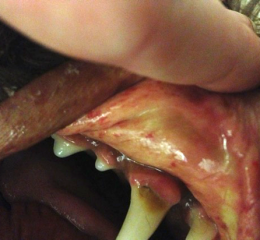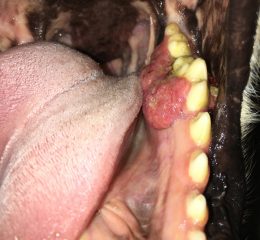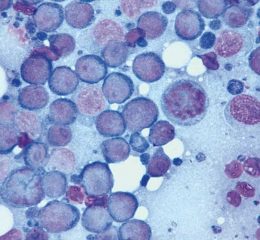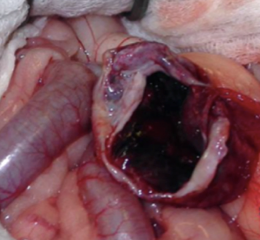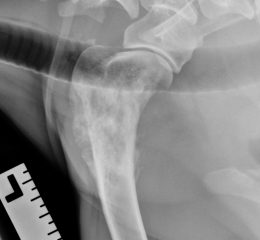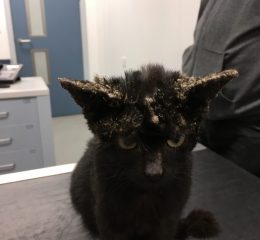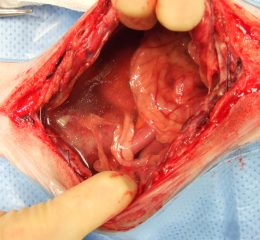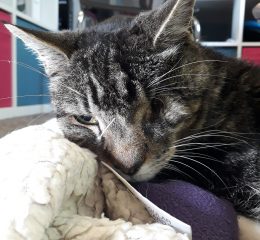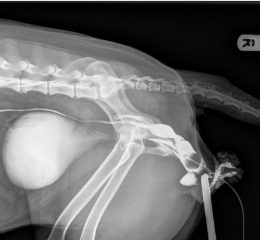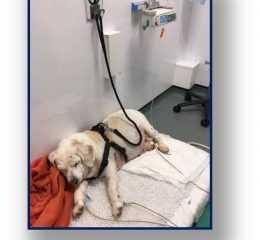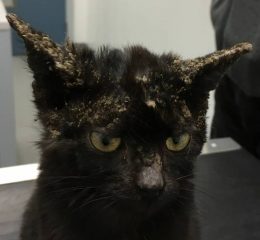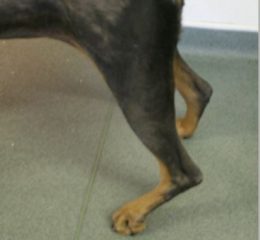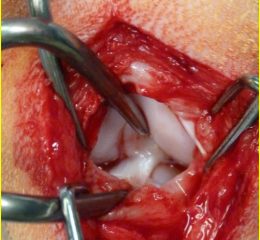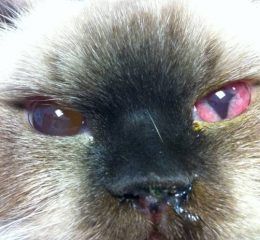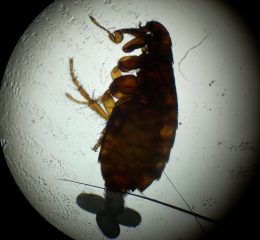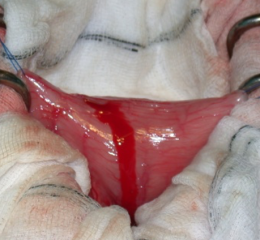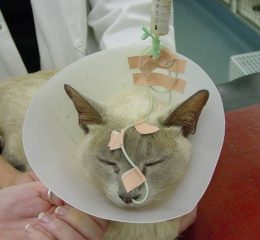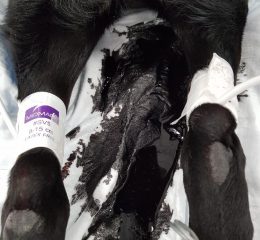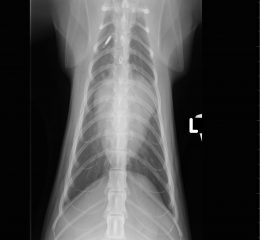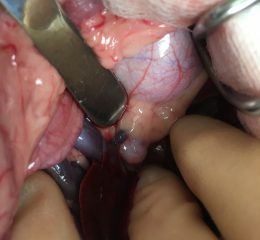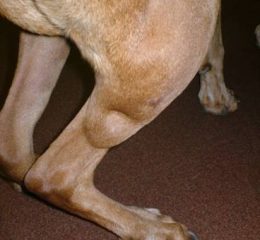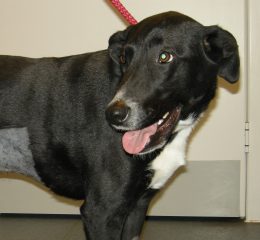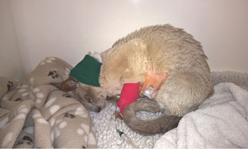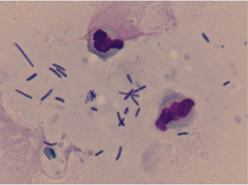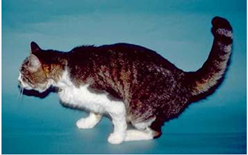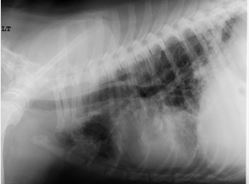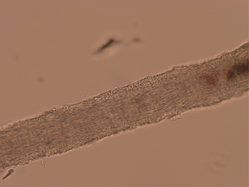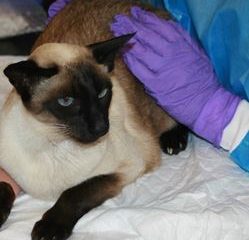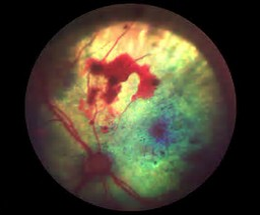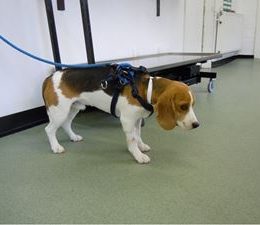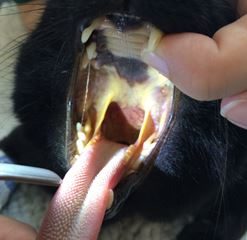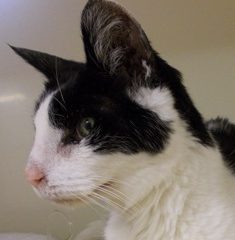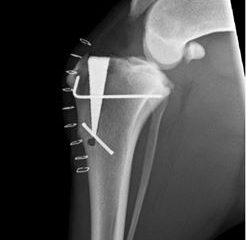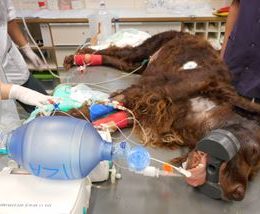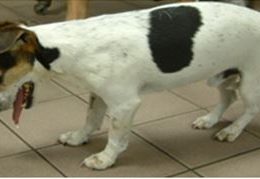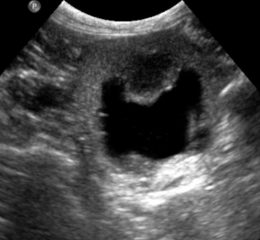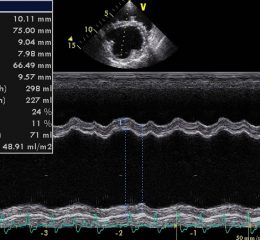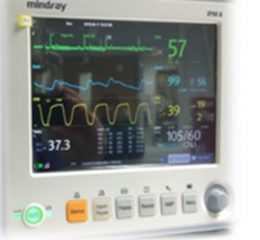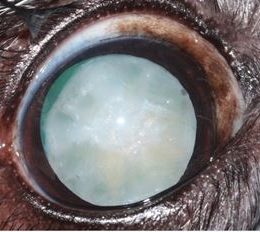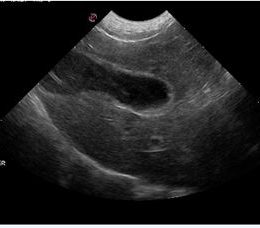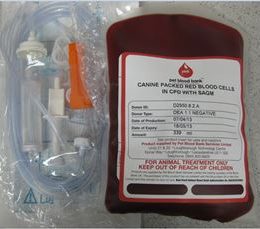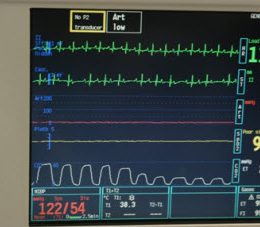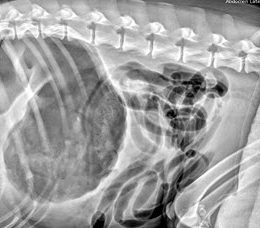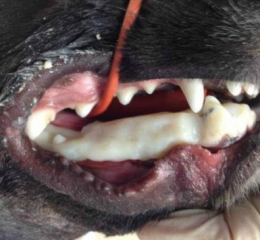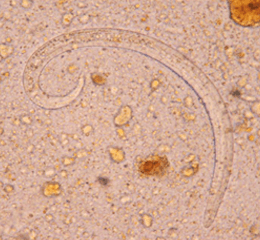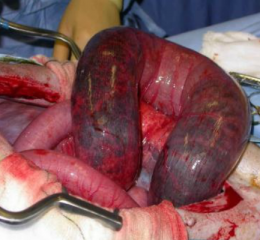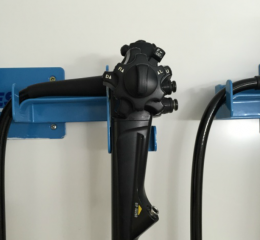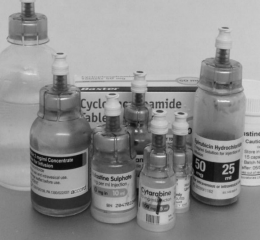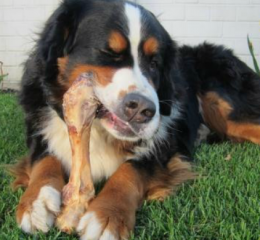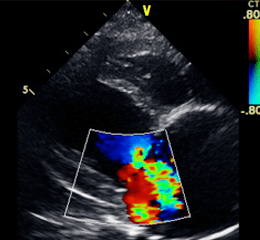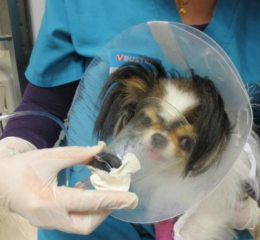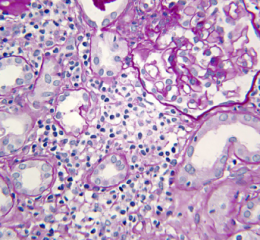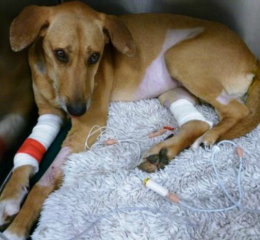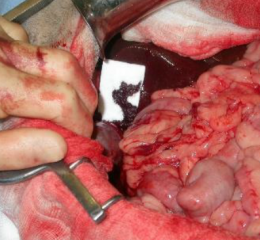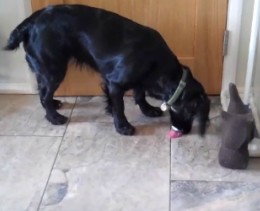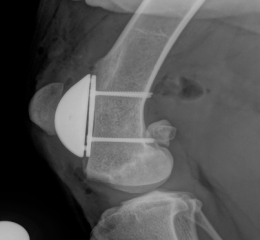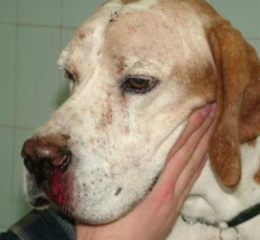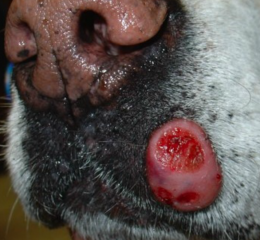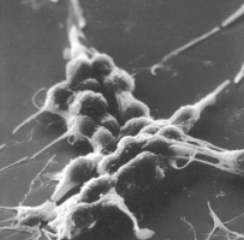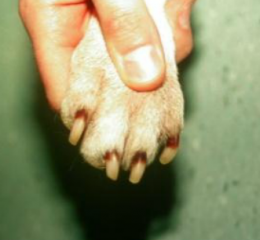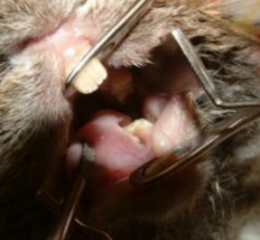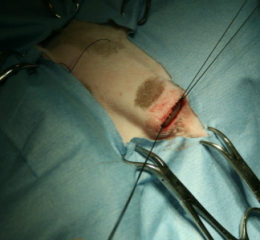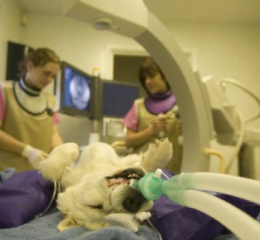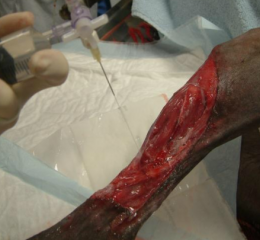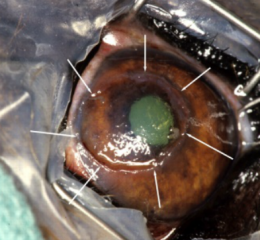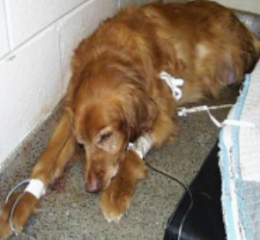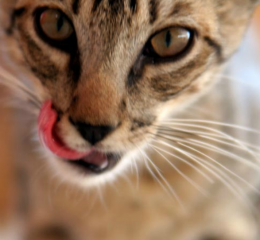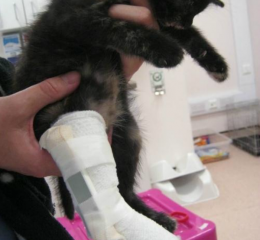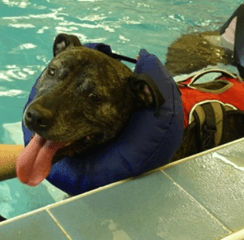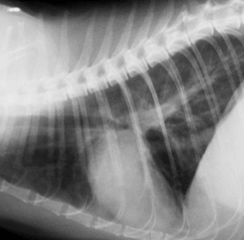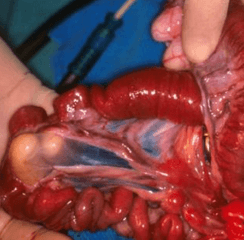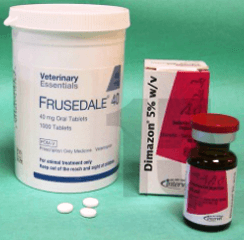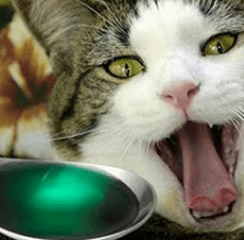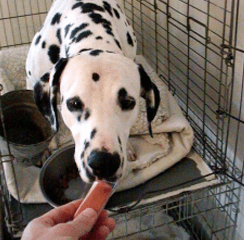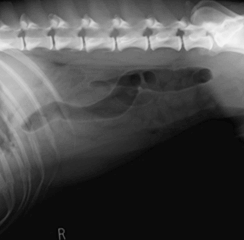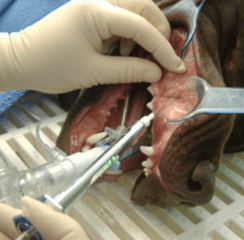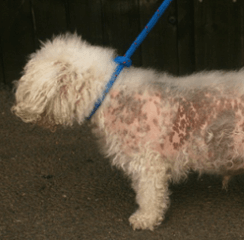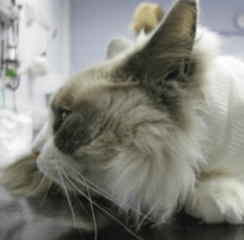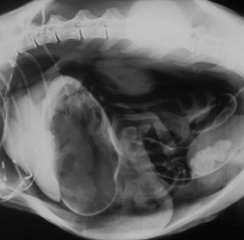Small Animal Practice Club Archive
Diagnosing and managing acute liver disease
Presenter: Jennifer Cartwright
BSc BVSc PGCertCVM DipECVIM-CA MScR PhD MRCVS
Senior Lecturer in Small Animal Internal Medicine
Category: Small Animal Practice Club
View WebinarApproach to the coagulopathic patient
Presenter: Craig Breheny
BVM&S DipECVIM-CA SFHEA MRCVS
Category: Small Animal Practice Club
Dogs and cats presenting with spontaneous haemorrhage can be tricky cases at the best of times for us, and often have given their owners plenty of worry. With a focussed history, review of the clinical signs and diagnostic testing, an intimidating differential list can be narrowed down to one that’s…
View WebinarAn Update on Chronic Gastrointestinal Disease
Presenter: Andrew Kent BVSc DipECVIM-CA MRCVS
European & RCVS Specialist in Small Animal Internal Medicine
Clinical Director, Blaise Veterinary Referral Hospital
Category: Small Animal Practice Club
Gastrointestinal diseases are common in practice and can frequently be a source of frustration for both owners and clinicians. We will start with an overview of the conventional approach to chronic gut disease with emphasis on logical problem solving. The role of diet and options for immunosuppression will also be…
View WebinarFeline urethral obstruction
Presenter: Meredith 't Hoen, DVM, DACVECC, DECVECC
Category: Small Animal Practice Club
This lecture will address the management of cats with urethral obstructions, starting with the current understanding of the physiology behind feline idiopathic cystitis. The causes of urethral obstructions as well as appropriate identification and stabilization will be reviewed. Placement of urinary catheters as well as in hospital management will be…
View WebinarProteinuria in the context of canine glomerular disease
Presenter: Dr Glynn Woods
BVMS MSc Dip.ECVIM-CA MRCVS
RCVS and EBV recognised specialist in small animal internal medicine
Senior Lecturer in Small Animal Internal Medicine at the University of Edinburgh
Category: Small Animal Practice Club
Glomerular disease incorporates pathology that affects the structure and or function of the nephron glomerulus. Glomerular diseases are the most common cause of life-threatening proteinuria in canine patients. Their proteinuria warrants aggressive treatment, close monitoring and management of disease consequences. This webinar will briefly revise the anatomy and physiology of…
View WebinarA Practical Approach to Splenic Tumours in Dogs
Presenter: Owen Davies
RCVS Specialist in Veterinary Oncology, American Board-Certified Veterinary Oncologist™, EBVS® European Specialist in Small Animal Oncology
Category: Small Animal Practice Club
A Practical Approach to Canine Splenic Masses I’ve got a dog with a splenic mass lesion. What are the chances of it being a haemangiosarcoma? The “double two-thirds rule” states that approximately 2/3 of canine splenic tumours are malignant, and out of those a further 2/3 are haemangiosarcomas. So, in…
View WebinarGI endoscopy
Presenter: Simon Tappin
MA VetMB CertSAM DipECVIM-CA FRCVS
European and RCVS-Recognised Specialist in Small Animal Internal Medicine
Category: Small Animal Practice Club
Endoscopy of the gastrointestinal tract is a very useful technique in small animal practice, allowing evaluation and diagnosis for numerous clinical conditions. This webinar will start by discussing the indications for gastrointestinal endoscopy in both dogs and cats and considering whether upper of lower gastrointestinal endoscopy is going to be…
View WebinarNeutering : The pros and cons : should we adopt a more tailored approach?
Presenter: Catherine Sturgeon BVetMed(hons) Cert SAS DipECVS MRCVS
EBVS® European Specialist in Small Animal Surgery
Category: Small Animal Practice Club
Neutering is performed electively in many veterinary practices nearly every day, but how necessary is neutering for the responsibly owned, individual dog? During this webinar we will explore the positive and negative long term consequences of neutering. The ovaries and testes are more than just reproductive organs, their role as…
View WebinarAcromegaly in Cats: the Diabetic in Disguise
Presenter: Sarah Stewart, DVM, DACVIM (SAIM), MRCVS
Category: Small Animal Practice Club
Acromegaly, the clinical syndrome associated with excess growth hormone production of hypersomatotropism, has a surprisingly high prevalence in diabetic cats in the UK with up to 1 in 4 diabetic cats affected. Standard management of diabetes mellitus alone won't be successful for these cats, so early detection and awareness of…
View WebinarRecognising forebrain and cerebellar disorders
Presenter: Abbe Crawford
BVM&S BSc PhD MRCVS
Clinician in Neurology and Neurosurgery (Research Track)
Category: Small Animal Practice Club
Disorders of the forebrain and cerebellum present with distinct neurological deficits that can be detected with a thorough history and systematic neurological examination. In this session we will recap the neurological abnormalities that can be present in animals with disorders of the forebrain and cerebellum. We will discuss some of…
View WebinarCerebrovascular accidents in dogs and cats
Presenter: Nicolas Granger
DVM PhD DipECVN FHEA FRCVS
European and RCVS Specialist in Veterinary Neurology (Small Animals)
Category: Small Animal Practice Club
In this lecture, we will review the common causes of cerebrovascular accidents in dogs and cats. These are broadly divided in ischemic accidents and haemorrhagic accidents. We will highlight the clinical situations that predispose to these events. This is of particular importance because screening for common cause of ischemic or…
View WebinarPet Obesity (physiotherapist)
Presenter: Suzanne Cottrial
BA, BSc, MSc Vet Physio, MCSP, Cat A ACPAT
Chartered Physiotherapist Programme Co-ordinator for PgDip and MSc Veterinary Physiotherapy
Category: Small Animal Practice Club
This lecture gives you some basic exercises to help the obese patient as part of a weight loss programme. Exercise progression is outlined and how muscles and the skeleton responds to activity. Continuous assessment and programme adjustment is needed for any weight loss programme and this is also true of…
View WebinarTips for performing and interpreting the neurological examination
Presenter: Dr Abbe Crawford
BVM&S BSc PhD MRCVS
Category: Small Animal Practice Club
When presented with an animal with potential neurological dysfunction it is vital to perform a systematic and thorough neurological examination. The goals of the neurological examination are to determine if the patient has a neurological problem and, if so, which part of the central or peripheral nervous system is affected…
View WebinarDiagnosis and Management of Pancreatitis
Presenter: Andrew Kent BVSc DipECVIM-CA MRCVS
European Veterinary Specialist in Small Animal Internal Medicine - Blaise Veterinary Referral Centre
VIN Consultant - Canine Medicine
Bespoke CPD
Category: Small Animal Practice Club
Pancreatic disease is common in dogs and cats but can also present in the same way as other acute abdominal diseases making a confident diagnosis challenging. This webinar will outline the diagnostic criteria for pancreatitis as well as the latest thoughts in the management of this condition. The aim is…
View WebinarBasics of wound management and reconstruction
Presenter: Nicola Kulendra BVetMed (Hons) MVetMed CertVDI DipECVS PGCert (VetEd) FHEA FRCVS
European and RCVS Specialist in Small Animal Surgery
Category: Small Animal Practice Club
Wounds can be one of the most challenging cases we see, and it is often necessary to modify our plan at multiple points on our journey to wound healing. This 90-minute webinar will go through every aspect of wound management and reconstructive principles. From initial wound management to dressings, this…
View WebinarBlood pressure monitoring under anaesthesia
Presenter: Becky Robinson
BVSc MVetMed DipECVAA FHEA MRCVS
RCVS and EBVS® European Specialist in Veterinary Anaesthesia and Analgesia
Category: Small Animal Practice Club
This webinar aims to give an overview of both the importance of, and potential ways in which the blood pressure can be monitored during anaesthesia. It introduces the relevance of understanding underlying physiological and haemodynamic principles before continuing to the specific pieces of monitoring equipment. The physical principles upon which…
View WebinarA rational approach to antibiotic use in the urinary tract
Presenter: Andrew Kent BVSc DipECVIM-CA MRCVS
EBVS® European Veterinary Specialist in Small Animal Internal Medicine
Category: Small Animal Practice Club
Urinary tract infections are common in our patients and, consequently, a common reason for antibiotic prescribing. However, there is increasing concern about our responsibilities around the use of these medications so it is important we consider closely where they are and are not indicated. We will discuss the appropriate use…
View WebinarRehabilitation for neurological patients post-op
Presenter: Mathilde Granger, DVM, Dip A.Phys, MRCVS
Category: Small Animal Practice Club
After spinal cord injury, several basic neurological functions can be affected, from subtle proprioceptive deficits to paraplegia and incontinence. Providing an adequate rehabilitation program is based on a thorough assessment of the deficits, establishing a treatment plan with specific goals for the affected patient and regular review of the progress.…
View WebinarCommon surgical emergencies: a case based approach
Presenter: Nicola Kulendra
BVetMed CertVDI DipECVS MRCVS
EBVS® European Specialist in Small Animal Surgery
Category: Small Animal Practice Club
This webinar will look at some surgical emergencies that can be difficult to manage. Urethral obstruction can be challenging and there will be tips on catheterisation in order to avoid urethral trauma. There will be information on different techniques to help retropulse stones back into the bladder and what to…
View WebinarManagement of traumatic wounds
Presenter: Lara Dempsey BVetMed GPCertSAS GPCertSAM CertAVP(GSAS) DipECVS MRCVS
RCVS and European Specialist in Small Animal Surgery
Category: Small Animal Practice Club
Decision making in wound management can be problematic. This can sometimes mean that owners need to be invested with regards to financial commitment and time leading to stress for the patient, owner and veterinary surgeon concerned. This webinar seeks to provide a summary of wound treatment from the simplest methods…
View WebinarThe role of the microbiome in chronic gastrointestinal disease including probiotics, faecal transplantation, diet
Presenter: Andrew Kent
BVSc DipECVIM-CA MRCVS
RCVS Specialist in Small Animal Medicine
European Veterinary Specialist in Small Animal Internal Medicine
Category: Small Animal Practice Club
Our ability to evaluate the microbiome is improving all the time and with that our understanding of its potential role in disease. In this lecture we will summarise the current understanding of the normal microbiome and the human and animal diseases in which dysbiosis is observed. In addition I will…
View WebinarFeline Kidney Disease
Presenter: Kerry Rolph, BVM&S CERTVC PHD FANZCVS DIPECVIM-CA FRCVS
Associate Professor Small Animal Internal Medicine and Director of the Center for Integrative Mammalian Research
Category: Small Animal Practice Club
This presentation will discuss the presentation of a case of feline kidney disease, how to assess the cat in the initial presentation, and then focus on what to follow over time to be able to monitor the case, and what treatment options can be considered at different time points. The…
View WebinarHeart murmurs and DCM in Deerhounds
Presenter: Emily Dutton
BVM&S DVC MRCVS
RCVS Recognised Specialist in Veterinary Cardiology
Category: Small Animal Practice Club
"Easing the meaning of puppy murmurs in lockdown" With the increase in “lockdown puppy” sales, there has been an associated increase in puppy heart murmurs in veterinary practice. This presentation will describe the grading of heart murmurs. There will also be two case examples of puppies with congenital cardiac defects…
View WebinarAn update on pain assessment in dogs and cats
Presenter: Sandra Sanchis Mora
Lda Vet, MVetMed, PhD, Dip ECVAA, FHEA, MRCVS
Category: Small Animal Practice Club
In this webinar we will review the most recent pain assessment guidelines for dogs and cats. Recognising pain in our veterinary species is the key for a successful treatment, and despite all the advances in this matter, there is still a gap between occurrence of pain and its successful management.…
View WebinarTracheal collapse: Medicine or surgery
Presenter: Simon Tappin MA VetMB CertSAM DipECVIM-CA FRCVS
Head of Internal Medicine at Dick White Referrals, RCVS and ECVIM specialist in Internal medicine
Category: Small Animal Practice Club
Tracheal collapse is a common condition of middle aged, small breed dogs and frequently encountered in small animal practice. Clinical signs are usually proportional to the degree of collapse with most dogs having mild airway irritation leading to a frequent paroxysmal coughing. Although some dogs do develop severe signs of…
View WebinarSpinal trauma for general practice
Presenter: Nicolas Granger
DVM PhD DipECVN FHEA FRCVS
European and RCVS Specialist in Veterinary Neurology (Small Animals)
Category: Small Animal Practice Club
This lecture will present the management strategies to receive and correctly manage the dog or the cat presented to you following a traumatic incident leading to spinal injury. We will review a few tricks of the neuro exam and explain neurogenic and spinal shock. Some interactive X-rays will help you…
View WebinarClinical Genetics Essentials for Vets
Presenter: Dr Eleanor Raffan BVM&S, PhD, CertSAM, DipECVIM-CA, MRCVS
European and RCVS Specialist in small animal internal medicine
Category: Small Animal Practice Club
This session will give you a user-friendly update on which genetic tests to use, which to avoid and how they should be used to inform clinical practice and breeding decisions. After a brief refresher on how genetic variation leads to disease, I will review the different kinds of genetic tests…
View WebinarClinical approach to the seizuring cat
Presenter: Abbe Crawford
BVM&S BSc MVetMed PhD DipECVN FHEA MRCVS
Category: Small Animal Practice Club
In this webinar we will discuss how to recognise seizure activity and will cover important definitions relating to epilepsy (some extrapolated from dogs). We will review a diagnostic approach to the seizuring cat and consider neurological deficits we might see in a patient with intracranial disease as a cause of…
View WebinarCoagulation Abnormalities
Presenter: Yvonne McGrotty
BVMS CertSAM DipECVIM-CA MRCVS
RCVS & European Specialist in Small Animal Internal Medicine
Category: Emergency Club, Small Animal Practice Club
Coagulation abnormalities can be frightening conditions to deal with in practice due to the complexities of the coagulation system, and the speed at which they can become life threatening. In this webinar we will cover both congenital haemostatic disorders in cats and dogs (such as Von Willebrand Disease, Haemophilia and…
View WebinarAn approach to oral tumours
Presenter: Owen Davies MA VetMB MANZCVS(Small Animal Medicine) MVETMED DipACVIM
American Specialist in Veterinary Oncology
Category: Small Animal Practice Club
Webinar Summary
View Webinar'Overview on canine lymphoma
Presenter: Isabelle Desmas
DVM, MVetMed, Dip ACVIM (Oncology), MRCVS
Category: Small Animal Practice Club
Canine lymphoma is one of the most common, and best documented, neoplasm in veterinary medicine with many patients managed in general practice. Lymphoma is generally very sensitive to chemotherapy and a rewarding disease to treat. Whilst the diagnosis can often be established cytologically, histological assessment provides further classification. Immunophenotyping is…
View WebinarUrogenital Trauma
Presenter: Nicola Kulendra
BVetMed CertVDI DipECVS MRCVS
EBVS® European Specialist in Small Animal Surgery
Category: Small Animal Practice Club
Urogenital trauma is a common emergency presentation. This talk will focus on the most common urinary tract injuries and will discuss the stabilisation and management of these conditions. There will be a focus on how to improve the quality of the diagnostic imaging techniques in order to facilitate the decision…
View WebinarBone tumours - what’s new?
Presenter: Owen Davies
MA VetMB MANZCVS(Small Animal Medicine) MVETMED DipACVIM
American Specialist in Veterinary Oncology
Category: Small Animal Practice Club
Do I need to take a bone biopsy? Why not do an FNA? Fine needle aspiration of bone lesions can be an effective way of demonstrating cancer cells and this is often all the information you need to decide the first step in treatment (surgery in most cases). The precise…
View WebinarHow do I approach this weird skin lesion? - clinical case discussions
Presenter: Jon Hardy
MA VetMB MVM DipECVD MRCVS
RCVS & EBVS® European Specialist in Veterinary Dermatology
Category: Small Animal Practice Club
Some skin diseases are visually distinctive, so recognising them is not usually difficult. However, the skin can only respond in a number of ways and the picture can become complicated by factors like infection, self-trauma and lesion evolution; the cause of some skin lesions may therefore not be clear at…
View WebinarManagement of urinary tract trauma
Presenter: Daniela Murgia DMV MRCVS GPCert (SASTS) DECVS
RCVS and EBVS® European Veterinary Specialist in Small Animal Surgery
Category: Small Animal Practice Club
Urinary tract trauma and the relative consequences can be quite challenging even for vets at referral centers. The management of these cases is multidisciplinary and involves people such as criticalists in the ICU who usually triage the patient and stabilize them before and after the diagnostic work up, the anesthetists…
View WebinarA belly full of fluid: the surgeons’ perspective
Presenter: Nicola Kulendra BVetMed MVetMed CertVDI DipECVS PGCert (VetEd) FHEA MRCVS
European and RCVS Recognised Specialist in Small Animal Surgery
North Downs Specialist Referrals
Category: Small Animal Practice Club
This webinar will run through the diagnosis and management of ascites in canine and feline patients focusing on surgical conditions. Diagnostic techniques in these patients include imaging such as ultrasound, abdominocentesis and even diagnostic peritoneal lavage for small volumes of effusion. Indications for exploratory surgery include free gas on abdominal…
View WebinarLooking after your aging pet
Presenter: Mathilde Granger, DVM, MRCVS, Dip APhys
Category: Small Animal Practice Club
How often do we hear, or say, “this is just old age, there is nothing to do”? Of course, we cannot reverse the changes brought on by aging, but there are many things, often little, we can suggest, to make a big difference in the quality of life of our…
View WebinarUnderstanding the Genetics and Neurobiology of Obesity: Theory and Clinical Application
Presenter: Dr Eleanor Raffan BVM&S CertSAM DipECVIM-CA PhD MRCVS
RCVS & European Specialist in Small Animal Medicine
Category: Small Animal Practice Club
Understanding the Genetics and Neurobiology of Obesity: Theory and Clinical Application: Why are some animals prone to weight gain whereas others stay thin even with ad lib feeding? And why does this matter? This webinar will summarise new evidence about the genetic and neurendocrine regulation of appetite and body weight…
View WebinarUrinary incontinence in dogs
Presenter: Daniela Murgia DVM GPCert(SASTS) DipECVS MRCVS
RCVS and EBVS European Veterinary Specialist in Small Animal Surgery
Hon. Assoc. Professor in Small Animal Surgery - University of Nottingham
Category: Small Animal Practice Club
Urinary continence is the ability to control voluntary micturition requiring the co-ordination of several different functions. There are many possible causes for urinary incontinence. Despite urethral sphincter mechanism incompetence (USMI) due to spaying is the most common cause of urinary incontinence in female dogs, a thorough examination should be performed…
View WebinarCPR: An update on resuscitation
Presenter: Becky Robinson BVSc MVetMed DipECVAA FHEA MRCVS
Category: Small Animal Practice Club
It is important to realise that at some point, things will go wrong. The environments we work in, patients we treat and the fact we are human all contribute this. It is impossible to eliminate all undesirable events, but we can learn to minimise their risk and manage them appropriately…
View WebinarManagement of the allergic cat
Presenter: Jon Hardy MA VetMB MVM DipECVD MRCVS
RCVS Specialist in Veterinary Dermatology
EBVS® European Specialist in Veterinary Dermatology
Category: Small Animal Practice Club
Allergic skin disease is a relatively common presenting problem in cats, but it can be difficult and frustrating to manage. Cats are also capable of causing a considerable amount of trauma to their skin from scratching, so it can be distressing for owners. This webinar will review the approach to…
View WebinarManaging ligament and tendon injuries
Presenter: Mark Morton
BVSc DSAS(Orth) MRCVS
RCVS Specialist in Small Animal Orthopaedic Surgery
Category: Small Animal Practice Club
Tendons injuries are not uncommon following both trauma and degeneration. In this webinar we will review tendon function and structure, and the types of injuries that are seen. We will review strategies for managing some common types of injury and the surgical techniques performed.
View WebinarPhysiotherapy Case Studies for the First Opinion Practice
Presenter: Suzanne Cottriall
BSc, MSc Vet Physio, MCSP, Cat A ACPAT
Programme Coordinator MSc Vet Physio
Category: Small Animal Practice Club
This webinar will address the physiotherapy input options for the small animal first opinion practice. It will outline the types of conditions and relevant physio treatments that can be applied. By working through case studies, you will see how to identify the types of cases that you can refer for…
View WebinarAn approach to non-localizable lameness
Presenter: Karen L Perry BVM&S CertSAS DipECVS MSc Vet Ed FHEA MRCVS
Associate Professor in Small Animal Orthopedics
Section Head of Small Animal Surgery
Michigan State University, Veterinary Medical Center
Category: Small Animal Practice Club
A non-localizable lameness can be one of the most frustrating problems in small animal orthopedics. Localization of pain and discomfort is essential in the work-up of lame dogs in order to identify cause, prognosis and treatment options. However, in some cases, it is difficult to determine the exact localization of…
View WebinarHow to treat cats with lymphoma in 2020
Presenter: Owen Davies
MA VetMB MANZCVS(Small Animal Medicine) MVETMED DipACVIM
American Specialist in Veterinary Oncology
Category: Small Animal Practice Club
Lymphoma is the most common cancer to afflict our feline friends. Some cases are easy to treat and others seem intractable. Join Owen Davies as he discusses the latest thoughts on feline lymphoma and presents his approach to tackling this challenging disease in 2020
View WebinarFeline Bartonellosis: Managing zoonotic risk in practice and in the home
Presenter: Ian Wright
BVMS, MSc, MRCVS
Head of ESCCAP – the European Scientific Council for Companion Animal Parasites UK and Ireland.
Category: Small Animal Practice Club
Zoontoic pathogens such as Bartonella spp are common in UK cat fleas. Bartonellosis is a significant zoonosis with a variety of clinical presentations and the potential for widespread exposure in the UK pet owning population. The main route of zoonotic infections was traditionally thought to be via cat bites and…
View WebinarIntroduction to Gastrointestinal Surgery
Presenter: Nicola Kulendra
BVetMed CertVDI DipECVS MRCVS
EBVS® European Specialist in Small Animal Surgery
Category: Small Animal Practice Club
View WebinarHow to manage the cat with suspected liver disease
Presenter: Nick Bexfield
BVetMed PhD DSAM DipECVIM-CA PGDipMEdSci PGCHE FHEA MRCVS
European and RCVS Specialist Small Animal Medicine
Category: Small Animal Practice Club
There are a variety of liver diseases affecting cats, with a recent study identifying inflammatory and neoplastic diseases being common in the UK feline population. Clinical signs are often non-specific, and diagnosis relies on the results of laboratory test and diagnostic imaging, ideally combined with a liver biopsy. Once a…
View WebinarHow to sort a bleeding mess
Presenter: Kevin Murtagh
MVB, Cert SAM, dip ecvim-ca (internal medicine), mrcvs
RCVS and European Specialist in Internal Medicine
Category: Small Animal Practice Club
IMT is one of the most common and potentially devastating bleeding disorders we encounter in our patients. It requires a logical thought process and encompasses both emergency/critical care and internal medicine. Cases generally require a stabilisation period followed by investigations and finally decisions regarding a treatment plan. We must also…
View WebinarWhat becomes of the broken hearted? The mysteries of feline cardiomyopathy explained
Presenter: Liz Bode
BVSc PhD DipECVIM-CA(cardiology) FHEA MRCVS
Category: Small Animal Practice Club
Feline cardiomyopathies can be challenging to identify. This webinar will cover the different types of cardiomyopathy that we see in cats and how we diagnose them using echocardiography and other diagnostic techniques. Pre-clinical disease can be overlooked and we will discuss findings that may help you identify those cases that…
View WebinarAdrenal Surgery
Presenter: Catherine Sturgeon
BVetMed(Hons) CertSAS DipECVS MRCVS
European and RCVS Recognised Specialist in Surgery (Soft Tissue)
Category: Small Animal Practice Club
Fascinating yet complex, the adrenal glands produce a number of substances. The adrenal medulla produces catecholamines, adrenaline and noradrenaline and the adrenal cortex produces corticosteroids and sex hormones in small quantities. Adrenal glands can malfunction due to either a centralised pituitary tumour or from a primary adrenal tumour/s, occasionally some…
View WebinarAn Update in Fluid Therapy
Presenter: Sarah Gibson BVSc CertVA DipECVAA MRCVS
European Specialist in Veterinary Anaesthesia and Analgesia
Category: Small Animal Practice Club
Fluid therapy is a highly debated topic, with consensus and opinion on what to use and when, frequently changing. Fluids are indicated in many veterinary patients, for resuscitation, peri-operative management, as well as for the treatment of medical and surgical conditions. However, there are also side effects and complications associated…
View WebinarDecision making in canine mast cell tumours
Presenter: Owen Davies MA VetMB MVetMed MANZCVS(SAM) DACVIM(Oncology) MRCVS
RCVS & American Specialist in Veterinary Oncology
Category: Small Animal Practice Club
Mast cell tumours (MCTs) represent the full spectrum of tumour aggression from behaviourally-benign, indolent cutaneous masses to rapidly-progressive systemic disease. Predicting prognosis and choosing the correct treatment for canine MCTs is often difficult because most MCTs we see seem to lie in between these two extremes, where tumour behaviour is…
View WebinarCRGV – what do we know now?
Presenter: Laura Holm BVM&S CertSAM MRCVS
RCVS Advanced Practitioner in Small Animal Medicine
Category: Small Animal Practice Club
This webinar begins with an introduction to ‘Cutaneous and renal Glomerular Vasculopathy’ (CRGV) including terminology. The pathogenesis of the illness as a thrombotic microangiopathy (TMA) is covered, followed by a brief history of thrombotic microangiopathies in veterinary species. Thereafter, we move on to describe the signalment and epidemiology of CRGV…
View WebinarFriendly Felines or Challenging Cats? A practical approach to feline anaesthesia
Presenter: Becky Robinson BVSc MVetMed MRCVS DipECVAA FHEA
RCVS and EBVS® European Specialist in Veterinary Anaesthesia and Analgesia
Category: Small Animal Practice Club
Even for the simplest of cases, anaesthesia of feline patients is often considered more problematic then for the equivalent canine patient. There are multiple factors which may contribute to this including smaller patient size, greater degree of subclinical co-morbidities (cats are very good at hiding disease!), increased difficulties surrounding airway…
View WebinarAn approach to lower urinary tract disease in the dog
Presenter: Andrew Kent BVSc DipECVIM-CA MRCVS
RCVS Specialist in Small Animal Medicine
European Veterinary Specialist in Small Animal Internal Medicine
Category: Small Animal Practice Club
Urinary tract diseases are common in our patients and can pose diagnostic and therapeutic challenges. A logical approach based on accurate localisation of the symptoms is key and then dictates which tests might be most appropriate. A range of diagnostic tests will be outlined including urine analysis, blood analysis, diagnostic…
View WebinarAn update on Diabetic Ketoacidosis
Presenter: Amanda Paul BSc(Hons) BVSc(Hons) MVetSt MVIM MANZCVS MRCVS DipECVIM-CA
RCVS and European Specialist in Small Animal Internal Medicine
Category: Emergency Club, Small Animal Practice Club
Diabetic ketoacidosis can cause severe illness and death. Serum hyperosmolarity, osmotic diuresis, and vomiting are common and cause hypovolemia and severe dehydration. Altered mentation from serum hyperosmolarity and oedema, ketosis and increased capillary permeability, acidosis, and electrolyte disturbances can increase the risk for aspiration, nervous tissue injury and seizure activity.…
View WebinarFeline Stomatitis and its differentials
Presenter: Simone Kirby MRCVS, Tieraerztin, Dipl.EVDC
EBVS and RCVS recognised Specialist in Veterinary Dentistry
Category: Small Animal Practice Club
Feline Chronic Gingivostomatitis (FCGS) is a painful and debilitating disease in cats. Prevalence data from available studies vary from 0.7% to 12%, however most clinicians will be presented with at least a few cases per year. It is a multi-factorial disease, and its precise cause is yet unknown. While the…
View WebinarAn Update on Thoracic Radiology - Demystifying the Lungs
Presenter: Petra Agthe CertVDI DipECVDI MRCVS
Category: Small Animal Practice Club
Thoracic radiology is challenging because it can be technically difficult to obtain good-quality radiographs of the thorax, as well as superimposition of different structures, a wide range of possible normal variations and because radiographic findings are commonly non-specific. The webinar is providing a practical step-by-step guide for radiological interpretation of…
View WebinarDermatophytosis in cats and dogs
Presenter: Jon Hardy MA VetMB MVetMed DipECVD MRCVS
RCVS and European Specialist in Veterinary Dermatology
Category: Small Animal Practice Club
Dermatophytosis is an important skin disease of cats and dogs. Whilst it is not life-threatening, it is highly contagious and represents a public health risk. The disease can be difficult to recognise as there are a variety of clinical signs. This webinar will discuss the aetiopathogenesis of dermatophytosis, and then…
View WebinarAdministering Chemotherapy in General Practice & Common Pitfalls in Cancer Patient Management
Presenter: Shasta Lynch BVSc(hons) MANZCVS DipECVIM-CA(Oncology) MRCVS
RCVS and European Veterinary Specialist in Oncology
Category: Small Animal Practice Club
This webinar reviews the practical aspects of administering the chemotherapy drugs that you are most likely to encounter in general practice. We’ll cover conventional chemotherapy, metronomic chemotherapy and tyrosine kinase inhibitors to improve your comfort with these therapies and their safe handling and administration. We’ll discuss potential side effects of…
View WebinarInflammatory joint disease in Dogs and Cats
Presenter: Karen Perry BVM&S CertSAS DiplECVS MRCVS
Lecturer in Small Animal Surgery
Category: Small Animal Practice Club
Joint disorders can be either inflammatory or non-inflammatory. Inflammatory arthritides can be infectious or immune-mediated and are further subdivided into erosive and non-erosive based primarily on radiographic findings. This webinar will start by exploring the most commonly encountered form of inflammatory arthritis in dogs; immune-mediated polyarthritis. The classification of the…
View WebinarCanine Dilated Cardiomyopathy (DCM): Clinical Approach and New Perspectives
Presenter: Nuala Summerfield, Founder and Director
BSc, BVM&S, MRCVS, DipACVIM (Cardiology), DipECVIM-CA (Cardiology)
RCVS, European and American Recognised Specialist in Veterinary Cardiology
Category: Small Animal Practice Club
Dilated cardiomyopathy (DCM) is a form of canine acquired heart disease that typically affects large and giant breeds of dog. DCM develops gradually, often over a period of years, before symptoms of congestive heart failure develop. This early, symptom-free stage of the disease, known as the preclinical phase, has recently…
View WebinarAn Update on Mitral Valve Disease
Presenter: Simon Swift, MA, VetMB, CertSAC, DipECVIM-CA (Cardiology), MRCVS
UK and European recognized specialist in cardiology
Category: Small Animal Practice Club
Degenerative mitral valve remains the commonest heart disease seen in dogs. Recently, several studies have improved our knowledge to guide our treatment decisions. When asymptomatic dogs develop cardiomegaly secondary to their mitral regurgitation, pimobendan has been shown to delay the onset of congestive heart failure by 15 months. The evidence…
View WebinarPerianal Surgery
Presenter: Ronan Doyle MVB MRCVS CertSAS DipECVS
RCVS & European Specialist in Small Animal Surgery
Category: Small Animal Practice Club
Conditions around the anus occupy much of our time as vets, so this webinar will look in more detail at surgery in this area. But surgery here carries many doubts and fears as it’s a contaminated location which has a key function, and understandably we are worried of the risk…
View WebinarCut me and I’ll bleed…
Presenter: Scott Kilpatrick BSc (Hons) BVM&S MSc DipECVIM-CA MRCVS
European and RCVS Specialist in Small Animal Veterinary Internal Medicine
Category: Small Animal Practice Club
• Coagulation in cats and dogs: What tests and when? • Assessment of laboratory and patient side assessment of coagulation • Diagnosis and management of thrombocytopenia, thrombocytopathia and von Willibrand’s disease • Secondary coagulation disorders – understanding and treating these conditions despite financial limitations • Toxin ingestion and clotting consequences…
View WebinarVentricular Arrhythmias in the Dog
Presenter: Domingo Casamian-Sorrosal
DVM CertSAM DVC DECVIM-CA MRCVS
RCVS-Recognised Specialist in Veterinary Cardiology
European Specialist in Small Animal Internal Medicine
Category: Small Animal Practice Club
An ectopic beat originating from the ventricles is called a ventricular ectopic beat. Ventricular ectopic complexes (VPCs) are characterised by being wide (more than 70 ms in dogs and more than 40ms in cats) and bizarre, and their T waves are prominent. It is helpful to compare both the QRS…
View WebinarFeline Triaditis
Presenter: Professor Danièlle A Gunn-Moore,
BSc BVM&S PhD FHEA MACVSc MRCVS,
RCVS Specialist in Feline Medicine
Category: Small Animal Practice Club
This lecture will investigate the complex interplay between pancreatitis, inflammatory bowel disease and cholangitis in the cat. With the help of a clinical case, we will investigate why feline anatomy and physiology predisposes cats to develop these three conditions; focusing on the lack of an accessory pancreatic duct in most…
View WebinarDiet Matters: Answering questions your clients have about nutrition for dogs and cats
Presenter: Marge Chandler DVM, MS, MANZCVSc, DACVN, DACVIM, DECVIM-CA, MRCVS
Category: Small Animal Practice Club
There is no one right diet for all pets. The basic requirements for a diet are to be complete, balanced and safe. In Europe, nutrient requirement standards are set by FEDIAF. The diet should be appropriate for the pet’s lifestage, activity and body condition. More expensive diets may use more…
View WebinarAtrial Fibrillation in the Dog
Presenter: Domingo Casamian-Sorrosal
DVM CertSAM DVC DECVIM-CA MRCVS
RCVS-Recognised Specialist in Veterinary Cardiology
European Specialist in Small Animal Internal Medicine
Category: Emergency Club, Small Animal Practice Club
Atrial fibrillation is one of the most common arrhythmias in the dog. It is frequently encountered in clinical daily practice. The webinar will help you recognising this arrhythmia by a systematic and careful approach to the ECG. We will discuss “tricks” to help diagnosing this rhythm and avoid confusing it…
View WebinarFeline Geriatric Behavioural Problems – A case based approach
Presenter: Professor Danièlle A Gunn-Moore, BSc BVM&S PhD FHEA MACVSc MRCVS,
RCVS Specialist in Feline Medicine
Category: Small Animal Practice Club
More and more of our elderly cats are living ever-longer lives – which is wonderful. However, along with this, we see them develop ever more age-related problems, some related with the physiology of aging, others with pathological changes. This webinar will use a case-based approach to consider aging in cats,…
View WebinarVideo Analysis: A logical approach to funny turns
Presenter: Peter Smith BSc BVM&S PhD MRCVS DipECVN
RCVS & European Specialist in Veterinary Neurology
Category: Small Animal Practice Club
Reviewing client videos is an expanding part of veterinary work, particular in patients with episodic problems. The quality of these varies enormously but if owners can be encouraged to focus on the relevant abnormalities, they can be an invaluable resource in determining the most likely cause of the problem –…
View WebinarWhen the bile stops flowing, what next?
Presenter: Catherine Sturgeon BVetMed(hons) CertSAS DipECVS MRCVS,
European and RCVS Recognised Specialist in Surgery (Soft Tissue)
Category: Small Animal Practice Club
Hidden away in the cranial part of the abdomen, the biliary system is rarely seen and only starts to register on our radar when a patient starts to exhibit signs of biliary stasis / obstruction or peritonitis. We are therefore, unfamiliar with what is anatomically normal, when should we intervene…
View WebinarApproach to Laryngeal Paralysis
Presenter: Daniela Murgia DVM, DECVS, MRCVS
European Specialist in Small Animal Surgery
RCVS recognised Specialist in Small Animal Surgery
(Soft Tissue)
Category: Small Animal Practice Club
Laryngeal paralysis (LP) is a well recognised and potentially life threatening condition seen predominantly in older large-breed dogs. However it is also increasingly being recognised in cats. The condition results either from dysfunction of the caudal laryngeal nerves, which are terminations of the recurrent laryngeal nerves or from damage to…
View WebinarCanine Multiple Myeloma in first opinion practice
Presenter: Irina Gramer DrMedVet DipECVIM-CA MRCVS
European Veterinary Specialist in Small Animal Oncology
Category: Small Animal Practice Club
This webinar aims to provide essential information about pathology, diagnostic tools and treatments for canine multiple myeloma. Although multiple myeloma is an uncommon lymphoproliferative disease in dogs, it is important to have a general understanding as often these patients are seen as an emergency. Multiple myeloma is a B cell…
View WebinarHow to manage diarrhoea in cats and dogs
Presenter: Simon Tappin MA VetMB DipECVIM-Ca CertSAM MRCVS
European & RCVS-Recognised Specialist in Small Animal Medicine (Internal Medicine)
Category: Small Animal Practice Club
Diarrhoea is common presenting sign in small animal practice and has a wide variety of potential underlying causes, with quite different aetiologies and treatments. This webinar will focus on the approach to these patients, with presentation, clinical examination and historical clues, that can help us narrow the list of possible…
View WebinarHow to approach vomiting in dogs and cats
Presenter: Simon Tappin MA VetMB DipECVIM-Ca CertSAM MRCVS
European & RCVS-Recognised Specialist in Small Animal Medicine (Internal Medicine)
Category: Small Animal Practice Club
Vomiting is common presenting sign in small animal practice and has a wide variety of potential underlying causes, with quite different aetiologies and treatments. This webinar will focus on the approach to these patients, with presentation, clinical examination and historical clues, that can help us narrow the list of possible…
View WebinarFeline Hyperthyroidism - New Perspectives on an "Old" Disease
Presenter: Martha Cannon BA VetMB DSAM(fel) MRCVS
RCVS Specialist in Feline Medicine
Category: Small Animal Practice Club
Hyperthyroidism is a common problem of the older cat that can be highly rewarding to treat. In most cases diagnosis is straightforward using serum total T4 as the standard screening test. However, in a significant minority of cats total T4 is normal despite the presence of hyperthyroidism, especially early in…
View WebinarAn Update on Cruciate Surgery
Presenter: Scott Rutherford BVMS Cert SAS DipECVS MRCVS
RCVS Specialist in Small Animal Surgery (Orthopaedics)
European Specialist in Small Animal Surgery
Category: Small Animal Practice Club
With new techniques for treating the lameness associated with cranial cruciate ligament disease coming to the market every few months it can be daunting to know what is best to advise your client when you are presented with what still is the most common form of pelvic limb lameness in…
View WebinarSound advice: preventing and treating sound phobias in the dog and cat
Presenter: Stephanie Hedges BSc (Hons) CCAB
Canine Behaviour Counsellor
Category: Small Animal Practice Club
Fear of fireworks and other loud unpredictable noises is one of the most common problem behaviours reported in dogs. It is likely cats are also equally distressed, although their tendency to hide makes this less obvious. Once triggered noise phobias tend to escalate and can spread to a wide variety…
View WebinarHard Graft? How to make skin grafts simple
Presenter: Lynda Rutherford BVM&S MVetMed DipECVS MRCVS
Lecturer in Small Animal Surgery
Category: Small Animal Practice Club
This webinar will discuss when to choose a free skin graft and give you the confidence to try one! It will briefly cover open wound management to help achieve a suitable wound bed for a skin graft. We will discuss how to perform a skin graft (a step by step…
View WebinarHemangiosarcoma…the old and the new
Presenter: Shasta Lynch BVSc(hons) MANZCVS(SAM) DipECVIM-CA(Oncology) MRCVS Australian,
RCVS and European Veterinary Specialist in Oncology
Category: Small Animal Practice Club
Hemangiosarcoma is an aggressive tumour of vascular endothelial origin. In dogs it accounts for 45-51% of splenic tumours. The most common presentation is acute weakness or collapse and haemoabdomen. Treatment of canine splenic hemangiosarcoma involves a combination of surgery and chemotherapy in order to maximise survival times. In this webinar…
View WebinarTricks for local wound closure
Presenter: Ronan Doyle MVB MRCVS CertSAS DipECVS
RCVS & European Veterinary Specialist in Small Animal Surgery
Category: Small Animal Practice Club
We all can face challenging skin wounds in practice whether that’s with a wound that we may have created on tumour removal, or with a traumatic wound that the patient has presented with. Either way closure can bring challenges, but especially so if there is a large defect or significant…
View WebinarThe Dos and Don’ts in an Emergency
Presenter: Chiara Valtolina Dipl ACVECC, Dipl ECVECC
European Veterinary Specialist in Emergency and Critical Care
Category: Emergency Club, Small Animal Practice Club
It’s important to realise that everyone makes often involuntary mistakes and making mistakes it Is not per se a terrible thing if we learn from them.. repeating them it is. Emergency doctors often have to deal with multiple patients at the time and when the pressure is high, it is…
View WebinarRehab Physiotherapy for the Orthopaedic Patient
Presenter: Suzanne Cottriall BA, BSc, MSc Vet Physio
Member of the Chartered Society of Physiotherapy (MCSP)
Category A Association of Chartered Physiotherapists in Animal Therapy (ACPAT)
Category: Small Animal Practice Club
This webinar identifies the needs of the animal patient in relation to physiotherapy for orthopaedic conditions. The webinar outlines what an Animal and Chartered Physiotherapist is regarding qualifications but more importantly it outlines the treatment techniques used by Animal Physiotherapists, namely manual therapy, electrotherapy, hydrotherapy and rehabilitation. Physiotherapy can be…
View WebinarHow to Deal with Back Pain in Practice
Presenter: Professor Simon R Platt BVM&S, MRCVS, Dipl. ACVIM (Neurology) Dipl. ECVN
RCVS Specialist in Veterinary Neurology
College of Veterinary Medicine, University of Georgia
Category: Small Animal Practice Club
Dogs can frequently present with neck or back pain. This can be acute or chronic and can exist in isolation or may be accompanied by neurological deficits. This session will address many of the common causes of spinal pain in dogs which will include disc disease, discospondylitis, meningitis, and neoplasia.…
View WebinarUreteral Disease in Dogs and Cats: Where Are We Now?
Presenter: Daniela Murgia DipECVS MRCVS DVM
European Veterinary Specialist in Small Animal Surgery
RCVS Recognized Specialist in Small Animal Surgery (Soft Tissue)
Category: Small Animal Practice Club
Ureteral diseases in dogs and cats include mainly obstructions and congenital malformations such as ureteral ectopia. Ectopic ureters (EU) are the most common cause of urinary incontinence in juvenile female dogs and are often associated with UTI (urinary tract infections), urethral sphincter mechanism incompetence (USMI) , and renal dysplasia. Ureteral…
View WebinarEarlier Intervention for a Better Outcome: the Latest Advances in the Treatment of Canine Preclinical Heart Disease
Presenter: Nuala Summerfield BVM&S BSc,DipACVIM(Cardiology),DipECVIM-CA(Cardiology), MRCVS
RCVS & European Recognised Specialist in Veterinary Cardiology
Category: Small Animal Practice Club
Mitral valve disease (MVD) and dilated cardiomyopathy (DCM) are the two most common types of canine acquired heart disease. MVD and DCM develop gradually, often over a period of years, before symptoms of congestive heart failure develop. This early, symptom-free stage of the disease is known as the preclinical stage.…
View WebinarAnaesthesia for the Patient with Cardiac Disease
Presenter: Carl Bradbrook BVSc CertVA DipECVAA MRCVS
European Specialist in Veterinary Anaesthesia and Analgesia
Category: Small Animal Practice Club
This webinar will focus on the approach to patients with specific types of cardiac disease. Use of pre-anaesthetic assessment and patient stabilisation will be discussed to highlight the importance of a specific diagnosis prior to anaesthesia. A number of different cardiac diseases will be discussed, assessing their pathophysiology and how…
View WebinarConservative Management of Intervertebral Disc Disease
Presenter: Peter Smith BSc BVM&S PhD DipECVN MRCVS
RCVS & European Veterinary Specialist in Neurology
Category: Small Animal Practice Club
There is a perception that intervertebral disc problems require surgery for optimal treatment. However, in many cases, surgery is either unnecessary or inappropriate. This lecture will consider the range of disc associated problems that can occur in companion animals, reviewing the clinical presentation in such cases and the treatment options…
View WebinarLens Disease in Dogs
Presenter: Claudia Busse Dr. med. vet., CertVOphthal, DipECVO
European Specialist in Veterinary Ophthalmology
Category: Small Animal Practice Club
This webinar focuses on lens diseases in dogs and helps the small animal practitioner to diagnose and manage the most common conditions affecting this part of the eye.The crystalline lens is a transparent structure located behind the iris and allows the eye to focus. Its transparency and correct location are…
View WebinarThe Oncological Approach to Sarcomas and Other Tumours of the Connective Tissue
Presenter: Jenny Helm BVMS Cert SAM DipECVIM-CA MRCVS FHEA
European Specialist in Small Animal Internal Medicine
Senior Clinician in Veterinary Oncology
Category: Small Animal Practice Club
In this webinar I aim to cover the basic approach to the oncological case that presents with a soft tissue mass, this includes how to make an accurate diagnosis (including how to maximize what you can get out of the histopathology report) and how to stage the patient appropriately. We…
View WebinarImmune-Mediated Thrombocytopenia - What is Best Practice?
Presenter: Dr Kit Sturgess MA VetMB PhD CertVR DSAM CertVC MRCVS
RCVS Specialist in Internal Medicine
Category: Small Animal Practice Club
Immune mediated thrombocytopenia (ITP) is a relatively common disease in dogs but much rarer in cats. When cases present bleeding the pressure is on the clinician to make a diagnosis and start effective treatment as there is a risk that the patient will bleed out. Differentiating primary from secondary ITP…
View WebinarAn Introduction to the Basics of Scanning
Presenter: Anna Newitt BVSc DVDI DipECVDI MRCVS
European Veterinary Specialist in Diagnostic Imaging
Category: Small Animal Practice Club
This webinar includes an introduction to the principles of getting a good ultrasound scan of the abdomen. This includes how to set up equipment optimally and use of the machine controls to optimize image quality; with useful advice regarding imaging of difficult patients and probe choice. There is also an…
View WebinarWet, Dry or Drowned? A Practical Guide to Fluid Therapy
Presenter: Alessandra Mathis DVM CertVA DipECVAA MRCVS
European Specialist in Veterinary Anaesthesia and Analgesia
Category: Small Animal Practice Club
Intravenous fluid therapy is an important aspect of every day’s veterinary care. Unfortunately, too often, fluid therapy is prescribed without really understanding its risks and benefits. After a brief introduction to the physiology of body fluids and the different routes of administration, the most common fluids will be discussed. Is…
View WebinarWhat To Do When It All Goes Wrong - A Practical Approach to CPR
Presenter: Louise Clark BVMS, CertVA, DiplECVAA, MSc
(Clinical Management of Pain), MRCVS.
RCVS and European Specialist in Veterinary Anaesthesia
Category: Small Animal Practice Club
Dealing with a cardiac arrest is a challenging and stressful situation. This webinar aims to outline how to approach these cases from a practical standpoint, what equipment is needed and how best to use it. The decision as to when to undertake CPR and when it might not be appropriate…
View WebinarThe Secrets of Successful Film Reading
Presenter: Pete Mantis DipECVDI FHEA MRCVS
European & RCVS Recognized Specialist Diagnostic Imaging
Category: Small Animal Practice Club
Have you ever been caught looking at a radiograph and not knowing what to see or how to go about finding the abnormalities? This webinar will introduce you to a way of reading radiographs that a novice can immediately put into practice and gain the benefits. You will be able…
View WebinarIntraoral Fixation of Jaw Fractures
Presenter: Matthew Oxford BVM&S GPCert(SAS) MRCVS
Course Organiser for the British Veterinary Dental Association
Category: Small Animal Practice Club
Head and oral trauma are a common presentation in veterinary practice, which often arise from Road Traffic Collisions, kicks and bites from other animals, and from falls from a high height. They represent a significant challenge to repair, as orthopaedic repair techniques used in other areas are often not applicable…
View WebinarAn Update on Lungworm
Presenter: Jenny R Helm BVMS Cert SAM Dip-ECVIM CA MRCVS FHEA
European Specialist in Small Animal Internal Medicine
Clinician in Veterinary Oncology
Category: Small Animal Practice Club
This webinar will update delegates about canine lungworm in the United Kingdom. We will start with considerations regarding the species of lungworm that practitioners may encounter and review their clinical presentations. We will then focus on the life threatening parasite Angiostrongylus vasorum looking at what we know about the parasites…
View WebinarIntestinal Surgery
Presenter: Alison Moores BVSc(Hons) CertSAS DipECVS MRCVS,
RCVS & European Specialist in Small Animal Surgery (Soft Tissue)
Category: Small Animal Practice Club
Intestinal surgery is one of the most common abdominal surgeries performed in general practice and it is frequently performed as an emergency. The most common indication is foreign bodies; other indications include biopsy for intestinal disease (vomiting, diarrhea), neoplasia, intussusception, volvulus, ulceration/rupture. Animals vary with the extent of dehydration, acid-base…
View WebinarEndoscopy in General Practice
Presenter: Paul Higgs MA VetMB CertSAM DipECVIM-CA MRCVS
European Veterinary Specialist in Small Animal Internal Medicine
Category: Small Animal Practice Club
As endoscopes become cheaper and more readily available in general practice many veterinary surgeons have access to this equipment and yet feel unable to use it. This webinar will discuss the use of endoscopy including choosing your endoscope, understanding the main controls of the scope, nagivation of the gastrointestinal tract…
View WebinarTreating Lymphoma in Dogs and Cats in General Practice
Presenter: Shasta Lynch BVSc(hons) MANZCVS MRCVS DipECVIM-CA(Oncology)
European Veterinary Specialist in Small Animal Oncology
Category: Small Animal Practice Club
Lymphoma is a common canine and feline cancer and one that responds well to chemotherapy. This webinar reviews these diseases with an emphasis on how to manage canine and feline lymphoma patients in general practice. It discusses current recommendations for chemotherapy protocols and how to set yourself up for stress…
View WebinarOesophageal Foreign Bodies
Presenter: Catherine Sturgeon BVetMed(hons) CertSAS DipECVS MRCVS
European and RCVS Recognised Specialist in Surgery (Soft Tissue)
Category: Small Animal Practice Club
Oesophageal foreign bodies can be one of the most satisfying clinical presentations to resolve and generally carries a good prognosis – that is providing the diagnosis is prompt and the necessary equipment is to hand to remove the foreign body effectively and safely. This webinar will focus on the practical…
View WebinarSyncope or Seizure – Collapse from the Cardiologist’s Perspective
Presenter: Emily Dutton BVM&S DVC MRCVS
RCVS Diploma in Veterinary Cardiology
Category: Small Animal Practice Club
Syncope and seizure can mimic one another with a consequent high rate of misdiagnosis, particularly as affected patients are often normal at the time of presentation. It is important that we correctly distinguish causes of weakness and fainting from malignant cardiac arrhythmias which can degenerate into ventricular fibrillation or cardiac…
View WebinarManagement of Emergency Pleural Space Disease: Pyothorax and Pneumothorax
Presenter: Dr. Daniela Murgia DipECVS, MRCVS
European Veterinary Specialist in Small Animal Surgery
RCVS Recognized Specialist in Small Animal Surgery (Soft Tissue)
Category: Small Animal Practice Club
The degree of respiratory distress in animals affected by pleural space diseases depends on the severity and duration of the condition. Larger volumes of air or pleural effusion and acute presentation result in greater respiratory distress. Procedures allowing drainage of the thoracic cavity include thoracocentesis, placement of a thoracostomy tube,…
View WebinarManagement of Chronic Kidney Disease
Presenter: Mayank Seth BSc(Hons) BVetMed(Hons) DACVIM(SAIM) MRCVS
American and RCVS Specialist in Small Animal Internal Medicine
Category: Small Animal Practice Club
Chronic Kidney Disease (CKD) is one of the commonest chronic illnesses seen in practice, with up to 50% of cats showing some evidence of renal problems in some studies. While it is true that the disease cannot be cured, it must be differentiated from acute kidney injury, which is potentially…
View WebinarHypothyroidism: Diagnosis and Treatment
Presenter: Simon Tappin MA VetMB DipECVIM-Ca CertSAM MRCVS
European & RCVS-Recognised Specialist in Small Animal Medicine (Internal Medicine)
Category: Small Animal Practice Club
Hypothyroidism is the most common canine endocrinopathy (population prevalence 0.2-0.8%), but can be challenging to diagnose. It is important to use a combination of clinical assessment, such as signalment, presenting signs and clinical examination findings, as well as routine and then specific endocrine tests in order to make a definitive…
View WebinarThe Critical In-Patient Essential Checklist
Presenter: Shailen Jasani MA VETMB MRCVS DACVECC
Category: Emergency Club, Small Animal Practice Club
Taking care of critically ill patients can be very rewarding if at times also quite challenging. These patients may have more than one primary disease process, may have had surgery, and may also have one or more concurrent comorbidities. Although they vary to some extent in terms of their importance,…
View WebinarThe Bleeding Abdomen: A Surgical Perspective
Presenter: Davinia Arnott BVMS CertSAS DipECVS
European Specialist in Small Animal Surgery
Category: Small Animal Practice Club
How do we deal with the emergency situation of a haemoabdomen? We will cover the initial stabilisation of the patient. We shall give practical surgical tips on when to cut and when not to! The lecture will include not only how to deal with splenic haemorrhage but also what happens…
View WebinarUnderstanding and Treating Compulsive Behaviour
Presenter: Stephanie Hedges BSc (Hons) RVN CCAB
Canine Behaviour Counsellor
Category: Small Animal Practice Club
Compulsions are repetitive and ritualistic behaviours that do not have a role in normal function and that interfere with everyday activity. They generally arise as an animal’s way of alleviating emotional distress. However, this type of behaviour spans the veterinary and behaviour modification disciplines as it can also arise due…
View WebinarPatellar Luxation
Presenter: Andy Torrington BVMS CertSAO MRCVS
Torrington Orthopaedics
Category: Small Animal Practice Club
In this webinar we will be exploring the causes and pathologies associated with Patellar Luxation. It is a commonly held (and mistaken) belief that this is a problem that has an uncomplicated outcome following surgery. We will explore the reasons why certain forms of surgical intervention may be more likely…
View WebinarThe Travelling Pet: What are the Risks?
Presenter: Simon Tappin MA VetMB CertSAM DipECVIM-CA MRCVS
European & RCVS-Recognised Specialist in Small Animal Medicine (Internal Medicine)
Category: Small Animal Practice Club
Travel under the PETS scheme is becoming increasing popular with many animals having entered the UK through the scheme, which has become less stringent in its requirements in recent years. So far PETS has been successful in its goals, which were primarily to protect the UK from rabies, live tick…
View WebinarCanine Mast Cell Tumours
Presenter: James Elliott BVM&S CertSAM DipECVIM-CA (Oncology) MRCVS
European & RCVS Specialist in Veterinary Oncology
Category: Small Animal Practice Club
Mast Cell Tumours (MCTs) are one of the most common cancers dealt with by veterinary practitioners in the UK. They are round cell tumours and usually occur on the skin; though subcutaneous, mucosal and visceral forms are also seen occasionally. Most are cured by adequate surgical excision but on some…
View WebinarProblem-Based Approach to Coagulopathies
Presenter: Eleanor Raffan BVM&S CertSAM DipECVIM-CA PhD MRCVS
European Specialist in Small Animal Medicine
Category: Course Companion Seminars, Small Animal Practice Club
Disorders of blood clotting can be alarming cases to deal with. A wide variety of aetiologies, from toxic through immune mediated to genetic, can converge on coagulopathies, but careful physical examination and a logical approach means everyone can do a good job of diagnosing and treating these cases in practice.…
View WebinarA Clinical Approach to Canine Pododermatitis
Presenter: Peter Forsythe BVM&S DVD MRCVS
RCVS Specialist in Veterinary Dermatology
Category: Small Animal Practice Club
Canine pododermatitis is a common clinical presentation in small animal practice. It usually presents as either paw licking or lameness with variable additional, non-specific clinical signs. A wide range of conditions can result in pododermatitis. Disease may be confined to the paws, it may be part of a generalised skin…
View WebinarRabbit Dentistry
Presenter: Dr Alex J Smithson BVM&S MRCVS BDS (Hons)
Veterinary Dental, Oral & Maxillofacial Referrals
Category: Small Animal Practice Club
This webinar presents essential information and practical guidance and tips to improve your approach to the frustrating and serious dental conditions so commonly encountered in practice. Rabbit dentistry can prove challenging. Dental problems in rabbits are rife and cause many welfare issues. With often far-reaching local and systemic effects, dental…
View WebinarArrhythmias and Anti-Arrhythmic Drug Therapy
Presenter: Kit Sturgess MA VetMB PhD CertVR DSAM CertVC MRCVS
RCVS Specialist in Internal Medicine
Category: Small Animal Practice Club
Arrhythmias are more common in small animal practice than is often appreciated probably due to the under use of ECGs. Appropriate anti-arrhythmic therapy can be life saving in some cases and significantly improve the quality of life in others. They can be indicators of non-cardiac disease leading to more rapid…
View WebinarApproach to the Coughing Dog
Presenter: Jon Wray BVSc DSAM Cert VC MRCVS,
RCVS-Recognised Specialist in Small Animal Medicine
(Internal Medicine)
Category: Small Animal Practice Club
A cough is a common presentation in dogs and a logical approach based on a thorough history and examination results in a definitive diagnosis in the majority of cases. This webinar will concentrate on the diagnosis of coughing disorders in dogs using examples of different causes. The historical and physical…
View WebinarWound Management
Presenter: Aidan McAlinden MVB CertSAS DipECVS MRCVS
European Specialist In Small Animal Surgery
Category: Small Animal Practice Club
Wounds are something we are faced with on a daily basis in practice. They can be hugely rewarding to treat when they go well but all too often we are presented with difficult wounds that can present additional challenges and significant complications. This results in frustration to us the veterinarians,…
View WebinarCorneal Ulceration in Dogs
Presenter: Claudia Hartley BVSc CertVOphthal DipECVO MRCVS
European & RCVS Recognised Specialist in Veterinary Ophthalmology
Category: Small Animal Practice Club
This webinar hopes to help delegates improve their confidence in dealing with difficult corneal ulcer cases in dogs. We will review the anatomy and physiology with respect to how ulcers worsen and heal, and how to avoid deterioration and promote healing. Understanding predisposing risk factors, and those likely to influence…
View WebinarDealing with Nightmare Epileptic Dogs and Cats
Presenter: Dr Laurent Garosi DVM Dip ECVN MRCVS
RCVS & European Specialist in Veterinary Neurology
Head of Neurology/Neurosurgery- Davies Veterinary Specialists
Category: Small Animal Practice Club
Seizures are aetiologically categorised as idiopathic, symptomatic or reactive. Idiopathic epilepsy is the most common cause in dogs and cats. The main aims of antiepileptic treatment are to reduce the frequency and severity of seizures while minimising potential side effects and optimising the owner’s and dog’s quality of life. Most…
View WebinarResponsible and Effective Use of Antibiotics
Presenter: Eleanor Raffan BVM&S CertSAM DipECVIM-CA PhD MRCVS
European Specialist in Small Animal Medicine
Category: Small Animal Practice Club
Antibiotics are some of the most valuable drugs that we have available to treat veterinary patients. However, antibiotic resistance is increasingly common among veterinary pathogens and the hazard posed to human health by multiresistant antibiotics means that the veterinary profession is increasingly under pressure to use these drugs carefully. This…
View WebinarRecognising, Quantifying and Managing Chronic Pain in Cats
Presenter: Dr. Jo Murrell, BVSc. (hons), PhD, Dipl ECVAA, MRCVS
Category: Small Animal Practice Club
Chronic pain likely has a significant impact on an animal’s well-being and quality of life and therefore requires effective management to ensure the welfare of the patient. Until very recently chronic pain in cats has been a neglected problem, with limited information available about how to recognise signs of chronic…
View WebinarHow to Deal with Orthopaedic Emergencies
Presenter: Davinia Arnott BVMS CertSAS DipECVS MRCVS
European Specialist in Small Animal Surgery
Category: Small Animal Practice Club
The lecture will be a refresher particularly aimed at how to manage the common orthopaedic emergencies that we see in general practice. This will include luxations, growth plate fractures, open fractures and shearing injuries. We will discuss bandaging and casting and how to avoid complications. We will use plenty of…
View WebinarApproach to the Problem Diabetic
Presenter: Eleanor Raffan BVM&S CertSAM DipECVIM-CA PhD MRCVS
European Specialist in Small Animal Medicine
Category: Small Animal Practice Club
Why do some diabetics stabilise soon after diagnosis and others cause problems for years? In this practical webinar Eleanor will address the common reasons for why diabetic animals may not stabilise on treatment and offer you practical tips on how to investigate those cases and improve their treatment.
View WebinarIs Rehabilitation Beneficial to the Post-Surgical Patient?
Presenter: Sarah Girling Bsc BVSc CertSAS DipECVS MRCVS
European Specialist in Small Animal Surgery
Category: Orthopaedic Club, Small Animal Practice Club
The positive perception of physical therapy in the human field together with increased awareness of options, effectiveness and expertise in animals has resulted in increasing demand for its use in animals. This means veterinarians have increasing awareness too but uptake may be slow. My previous ignorant self asked why is…
View WebinarPractice Makes Perfect – Cardiac Radiology Interpretation
Presenter: Nuala Summerfield BSc BVM&S DipACVIM(Cardiology) DipECVIM-CA (Cardiology) MRCVS
RCVS Recognised Specialist in Veterinary Cardiology
Category: Small Animal Practice Club
Thoracic radiography is a frequently used diagnostic tool in veterinary practice. However interpretation of thoracic radiographs in patients with suspected cardiovascular disease can often be challenging. The aim of this webinar is to increase the delegates' ability and confidence in assessing heart size, specific cardiac chamber enlargement, pulmonary vascularity and…
View WebinarPerforming an Exploratory Laparotomy – Hints and Tips
Presenter: Alison Moores BVSc(Hons) CertSAS DipECVS MRCVS
RCVS and European Specialist in Small Animal Surgery
Category: Small Animal Practice Club
An exploratory laparotomy is commonly performed in practice. It may be for diagnostic purposes or for treating conditions such as intestinal foreign body or a bleeding splenic tumour. This lecture will use photographs of clinical cases to show normal anatomical features and examples of diseased organs. It will help the…
View WebinarCardiac Drugs - What to Use and When?
Presenter: Dr Kit Sturgess MA VetMB PhD CertVR DASM CertVC MRCVS
RCVS Recognised Specialist in Small Animal Medicine
Category: Small Animal Practice Club
Whilst a reasonable number of licensed preparations are available for the treatment of heart failure in dogs; there are only 2 licensed products (furosemide and diltiazem) available for cats with heart disease. As a result the clinician is frequently faced with cases where they have exhausted licensed preparation of there…
View WebinarNutritional Management of Lower Urinary Tract Disease
Presenter: Dr Marge Chandler DVM MS MANZCVSc DipACVN DipACVIM DipECVIM-CA MRCVS
Senior Lecturer in Internal Medicine
American Specialist in Veterinary Internal Medicine
Category: Small Animal Practice Club
Signs of lower urinary tract disease include straining, bloody urine and increased frequency of urination, and are common in cats and dogs. Disorders which most commonly cause these signs include urinary tract infections, uroliths, neoplasia and idiopathic feline lower urinary tract disease. Nutrition is a vital part of the management…
View WebinarSyringomyelia
Presenter: Dr Clare Rusbridge BVMS PhD DipECVN MRCVS
RCVS and European Specialist in Veterinary Neurology
Category: Small Animal Practice Club
Syringomyelia is a condition characterised by fluid filled cavities (syrinxes or syringes) within the central spinal cord and the resulting damage produces clinical signs of pain and neurological deficits. Since the increase in availability of magnetic resonance imaging syringomyelia is an increasingly common diagnosis in veterinary medicine. The most common…
View WebinarA Pot-Pourri of Poisons
Presenter: Shailen Jasani MA VetMB MRCVS DipACVECC
Category: Emergency Club, Small Animal Practice Club
Suspected or witnessed poisoning is a relatively common presentation in small animals. In this webinar we will first briefly review the general approach to the poisoned patient and in particular to the patient with neuromuscular toxicity. Attendees will be updated on the potential use of intravenous lipid emulsion for some…
View WebinarUnderstanding Emotions and Their Role In Behavioural Medicine
Presenter: Sarah Heath BVSc DipECAWBM (BM) CCAB MRCVS
European Veterinary Specialist in Behavioural Medicine
Category: Small Animal Practice Club
When faced with a behavioural problem the most important thing to establish is the underlying cause. Whilst the questions of “what” the animal is doing, “when” it does it and “with whom” are essential in the history taking process, it is the answer to the question “why” the animal behaves…
View WebinarMaking Sense Of Abdominal Effusions- A Body Cavity Search
Presenter: David Walker BVetMed(Hons) DipACVIM MRCVS
RCVS and American Recognised Specialist in Small Animal Internal Medicine
Anderson Moores Veterinary Specialists
Category: Small Animal Practice Club
This webinar will review the diagnostic approach to the dog and cat with abdominal effusion. Imaging and abdominocentesis findings will be discussed to help you to get the most from the diagnostic tests you perform. The common diseases that cause abdominal effusions in dogs and cats will also be reviewed.…
View WebinarPain and Prevention in Dentistry and Oral Surgery
Presenter: Mr Alex J Smithson BVM&S MRCVS
Veterinary Dental, Oral & Maxillofacial Referrals, North West England
Category: Small Animal Practice Club
This webinar presents essential, practical advice to guide your approach and techniques to identify, prevent and reduce pain in dental and oral cases. Topics covered include: Anticipating pain - dental and oral surgery cases Multi-modal analgesia Local nerve blocks Local infiltration Complications of local analgesia Surgical techniques
View WebinarDiagnosis and Management of Canine Cushing’s Disease
Presenter: Dr Rebecca Littler MA VetMB PhD DSAM MRCVS
RCVS Recognised Specialist in Small Animal Medicine
Northwest Surgeons
Category: Small Animal Practice Club
This webinar provides both a refresher and an insight into the hormonal challenges of Cushing's syndrome. In this webinar, Dr Rebecca Littler explains how, how often and why clinical signs associated with Hyperadrenocorticism (Cushing's syndrome) occur. She deals with the diagnosis of Cushing's syndrome and offers her tips for the…
View WebinarFeeding Tubes- NO, O, PEG, G or J?
Presenter: David Walker BVetMed(Hons) DipACVIM MRCVS
RCVS Recognised Specialist in Small Animal Internal Medicine
Anderson Moores Veterinary Specialists
Category: Small Animal Practice Club
This webinar will cover the indications for feeding tube placement and help you decide what tube to use in which situation. The placement and management of naso-oesophageal, oesophageal, percutaneous endoscopic gastrostomy, gastrostomy and jejunostomy tubes will be reviewed in detail. Possible contraindications to tube placement and complications associated with tube…
View WebinarMaking Abdominal Radiology Clearer
Presenter: Esther Barrett MA VetMB CertVR DVDI DipECVDI MRCVS
RCVS & European Specialist in Veterinary Diagnostic Imaging
Wales and West Imaging
Category: Small Animal Practice Club
Abdominal radiography is widely used as part of the diagnostic investigation into dogs and cats suspected of having either primary abdominal disease or disease elsewhere within the body that may potentially involve the abdomen. Accurate evaluation of abdominal radiographs can be challenging, as the majority of abdominal organs are of…
View WebinarDiagnosing and managing acute liver disease
Presenter: Jennifer Cartwright
BSc BVSc PGCertCVM DipECVIM-CA MScR PhD MRCVS
Senior Lecturer in Small Animal Internal Medicine
Category: Small Animal Practice Club
View WebinarApproach to the coagulopathic patient
Presenter: Craig Breheny
BVM&S DipECVIM-CA SFHEA MRCVS
Category: Small Animal Practice Club
Dogs and cats presenting with spontaneous haemorrhage can be tricky cases at the best of times for us, and often have given their owners plenty of worry. With a focussed history, review of the clinical signs and diagnostic testing, an intimidating differential list can be narrowed down to one that’s…
View WebinarAn Update on Chronic Gastrointestinal Disease
Presenter: Andrew Kent BVSc DipECVIM-CA MRCVS
European & RCVS Specialist in Small Animal Internal Medicine
Clinical Director, Blaise Veterinary Referral Hospital
Category: Small Animal Practice Club
Gastrointestinal diseases are common in practice and can frequently be a source of frustration for both owners and clinicians. We will start with an overview of the conventional approach to chronic gut disease with emphasis on logical problem solving. The role of diet and options for immunosuppression will also be…
View WebinarFeline urethral obstruction
Presenter: Meredith 't Hoen, DVM, DACVECC, DECVECC
Category: Small Animal Practice Club
This lecture will address the management of cats with urethral obstructions, starting with the current understanding of the physiology behind feline idiopathic cystitis. The causes of urethral obstructions as well as appropriate identification and stabilization will be reviewed. Placement of urinary catheters as well as in hospital management will be…
View WebinarProteinuria in the context of canine glomerular disease
Presenter: Dr Glynn Woods
BVMS MSc Dip.ECVIM-CA MRCVS
RCVS and EBV recognised specialist in small animal internal medicine
Senior Lecturer in Small Animal Internal Medicine at the University of Edinburgh
Category: Small Animal Practice Club
Glomerular disease incorporates pathology that affects the structure and or function of the nephron glomerulus. Glomerular diseases are the most common cause of life-threatening proteinuria in canine patients. Their proteinuria warrants aggressive treatment, close monitoring and management of disease consequences. This webinar will briefly revise the anatomy and physiology of…
View WebinarA Practical Approach to Splenic Tumours in Dogs
Presenter: Owen Davies
RCVS Specialist in Veterinary Oncology, American Board-Certified Veterinary Oncologist™, EBVS® European Specialist in Small Animal Oncology
Category: Small Animal Practice Club
A Practical Approach to Canine Splenic Masses I’ve got a dog with a splenic mass lesion. What are the chances of it being a haemangiosarcoma? The “double two-thirds rule” states that approximately 2/3 of canine splenic tumours are malignant, and out of those a further 2/3 are haemangiosarcomas. So, in…
View WebinarGI endoscopy
Presenter: Simon Tappin
MA VetMB CertSAM DipECVIM-CA FRCVS
European and RCVS-Recognised Specialist in Small Animal Internal Medicine
Category: Small Animal Practice Club
Endoscopy of the gastrointestinal tract is a very useful technique in small animal practice, allowing evaluation and diagnosis for numerous clinical conditions. This webinar will start by discussing the indications for gastrointestinal endoscopy in both dogs and cats and considering whether upper of lower gastrointestinal endoscopy is going to be…
View WebinarNeutering : The pros and cons : should we adopt a more tailored approach?
Presenter: Catherine Sturgeon BVetMed(hons) Cert SAS DipECVS MRCVS
EBVS® European Specialist in Small Animal Surgery
Category: Small Animal Practice Club
Neutering is performed electively in many veterinary practices nearly every day, but how necessary is neutering for the responsibly owned, individual dog? During this webinar we will explore the positive and negative long term consequences of neutering. The ovaries and testes are more than just reproductive organs, their role as…
View WebinarAcromegaly in Cats: the Diabetic in Disguise
Presenter: Sarah Stewart, DVM, DACVIM (SAIM), MRCVS
Category: Small Animal Practice Club
Acromegaly, the clinical syndrome associated with excess growth hormone production of hypersomatotropism, has a surprisingly high prevalence in diabetic cats in the UK with up to 1 in 4 diabetic cats affected. Standard management of diabetes mellitus alone won't be successful for these cats, so early detection and awareness of…
View WebinarRecognising forebrain and cerebellar disorders
Presenter: Abbe Crawford
BVM&S BSc PhD MRCVS
Clinician in Neurology and Neurosurgery (Research Track)
Category: Small Animal Practice Club
Disorders of the forebrain and cerebellum present with distinct neurological deficits that can be detected with a thorough history and systematic neurological examination. In this session we will recap the neurological abnormalities that can be present in animals with disorders of the forebrain and cerebellum. We will discuss some of…
View WebinarCerebrovascular accidents in dogs and cats
Presenter: Nicolas Granger
DVM PhD DipECVN FHEA FRCVS
European and RCVS Specialist in Veterinary Neurology (Small Animals)
Category: Small Animal Practice Club
In this lecture, we will review the common causes of cerebrovascular accidents in dogs and cats. These are broadly divided in ischemic accidents and haemorrhagic accidents. We will highlight the clinical situations that predispose to these events. This is of particular importance because screening for common cause of ischemic or…
View WebinarPet Obesity (physiotherapist)
Presenter: Suzanne Cottrial
BA, BSc, MSc Vet Physio, MCSP, Cat A ACPAT
Chartered Physiotherapist Programme Co-ordinator for PgDip and MSc Veterinary Physiotherapy
Category: Small Animal Practice Club
This lecture gives you some basic exercises to help the obese patient as part of a weight loss programme. Exercise progression is outlined and how muscles and the skeleton responds to activity. Continuous assessment and programme adjustment is needed for any weight loss programme and this is also true of…
View WebinarTips for performing and interpreting the neurological examination
Presenter: Dr Abbe Crawford
BVM&S BSc PhD MRCVS
Category: Small Animal Practice Club
When presented with an animal with potential neurological dysfunction it is vital to perform a systematic and thorough neurological examination. The goals of the neurological examination are to determine if the patient has a neurological problem and, if so, which part of the central or peripheral nervous system is affected…
View WebinarDiagnosis and Management of Pancreatitis
Presenter: Andrew Kent BVSc DipECVIM-CA MRCVS
European Veterinary Specialist in Small Animal Internal Medicine - Blaise Veterinary Referral Centre
VIN Consultant - Canine Medicine
Bespoke CPD
Category: Small Animal Practice Club
Pancreatic disease is common in dogs and cats but can also present in the same way as other acute abdominal diseases making a confident diagnosis challenging. This webinar will outline the diagnostic criteria for pancreatitis as well as the latest thoughts in the management of this condition. The aim is…
View WebinarBasics of wound management and reconstruction
Presenter: Nicola Kulendra BVetMed (Hons) MVetMed CertVDI DipECVS PGCert (VetEd) FHEA FRCVS
European and RCVS Specialist in Small Animal Surgery
Category: Small Animal Practice Club
Wounds can be one of the most challenging cases we see, and it is often necessary to modify our plan at multiple points on our journey to wound healing. This 90-minute webinar will go through every aspect of wound management and reconstructive principles. From initial wound management to dressings, this…
View WebinarBlood pressure monitoring under anaesthesia
Presenter: Becky Robinson
BVSc MVetMed DipECVAA FHEA MRCVS
RCVS and EBVS® European Specialist in Veterinary Anaesthesia and Analgesia
Category: Small Animal Practice Club
This webinar aims to give an overview of both the importance of, and potential ways in which the blood pressure can be monitored during anaesthesia. It introduces the relevance of understanding underlying physiological and haemodynamic principles before continuing to the specific pieces of monitoring equipment. The physical principles upon which…
View WebinarA rational approach to antibiotic use in the urinary tract
Presenter: Andrew Kent BVSc DipECVIM-CA MRCVS
EBVS® European Veterinary Specialist in Small Animal Internal Medicine
Category: Small Animal Practice Club
Urinary tract infections are common in our patients and, consequently, a common reason for antibiotic prescribing. However, there is increasing concern about our responsibilities around the use of these medications so it is important we consider closely where they are and are not indicated. We will discuss the appropriate use…
View WebinarRehabilitation for neurological patients post-op
Presenter: Mathilde Granger, DVM, Dip A.Phys, MRCVS
Category: Small Animal Practice Club
After spinal cord injury, several basic neurological functions can be affected, from subtle proprioceptive deficits to paraplegia and incontinence. Providing an adequate rehabilitation program is based on a thorough assessment of the deficits, establishing a treatment plan with specific goals for the affected patient and regular review of the progress.…
View WebinarCommon surgical emergencies: a case based approach
Presenter: Nicola Kulendra
BVetMed CertVDI DipECVS MRCVS
EBVS® European Specialist in Small Animal Surgery
Category: Small Animal Practice Club
This webinar will look at some surgical emergencies that can be difficult to manage. Urethral obstruction can be challenging and there will be tips on catheterisation in order to avoid urethral trauma. There will be information on different techniques to help retropulse stones back into the bladder and what to…
View WebinarManagement of traumatic wounds
Presenter: Lara Dempsey BVetMed GPCertSAS GPCertSAM CertAVP(GSAS) DipECVS MRCVS
RCVS and European Specialist in Small Animal Surgery
Category: Small Animal Practice Club
Decision making in wound management can be problematic. This can sometimes mean that owners need to be invested with regards to financial commitment and time leading to stress for the patient, owner and veterinary surgeon concerned. This webinar seeks to provide a summary of wound treatment from the simplest methods…
View WebinarThe role of the microbiome in chronic gastrointestinal disease including probiotics, faecal transplantation, diet
Presenter: Andrew Kent
BVSc DipECVIM-CA MRCVS
RCVS Specialist in Small Animal Medicine
European Veterinary Specialist in Small Animal Internal Medicine
Category: Small Animal Practice Club
Our ability to evaluate the microbiome is improving all the time and with that our understanding of its potential role in disease. In this lecture we will summarise the current understanding of the normal microbiome and the human and animal diseases in which dysbiosis is observed. In addition I will…
View WebinarFeline Kidney Disease
Presenter: Kerry Rolph, BVM&S CERTVC PHD FANZCVS DIPECVIM-CA FRCVS
Associate Professor Small Animal Internal Medicine and Director of the Center for Integrative Mammalian Research
Category: Small Animal Practice Club
This presentation will discuss the presentation of a case of feline kidney disease, how to assess the cat in the initial presentation, and then focus on what to follow over time to be able to monitor the case, and what treatment options can be considered at different time points. The…
View WebinarHeart murmurs and DCM in Deerhounds
Presenter: Emily Dutton
BVM&S DVC MRCVS
RCVS Recognised Specialist in Veterinary Cardiology
Category: Small Animal Practice Club
"Easing the meaning of puppy murmurs in lockdown" With the increase in “lockdown puppy” sales, there has been an associated increase in puppy heart murmurs in veterinary practice. This presentation will describe the grading of heart murmurs. There will also be two case examples of puppies with congenital cardiac defects…
View WebinarAn update on pain assessment in dogs and cats
Presenter: Sandra Sanchis Mora
Lda Vet, MVetMed, PhD, Dip ECVAA, FHEA, MRCVS
Category: Small Animal Practice Club
In this webinar we will review the most recent pain assessment guidelines for dogs and cats. Recognising pain in our veterinary species is the key for a successful treatment, and despite all the advances in this matter, there is still a gap between occurrence of pain and its successful management.…
View WebinarTracheal collapse: Medicine or surgery
Presenter: Simon Tappin MA VetMB CertSAM DipECVIM-CA FRCVS
Head of Internal Medicine at Dick White Referrals, RCVS and ECVIM specialist in Internal medicine
Category: Small Animal Practice Club
Tracheal collapse is a common condition of middle aged, small breed dogs and frequently encountered in small animal practice. Clinical signs are usually proportional to the degree of collapse with most dogs having mild airway irritation leading to a frequent paroxysmal coughing. Although some dogs do develop severe signs of…
View WebinarSpinal trauma for general practice
Presenter: Nicolas Granger
DVM PhD DipECVN FHEA FRCVS
European and RCVS Specialist in Veterinary Neurology (Small Animals)
Category: Small Animal Practice Club
This lecture will present the management strategies to receive and correctly manage the dog or the cat presented to you following a traumatic incident leading to spinal injury. We will review a few tricks of the neuro exam and explain neurogenic and spinal shock. Some interactive X-rays will help you…
View WebinarClinical Genetics Essentials for Vets
Presenter: Dr Eleanor Raffan BVM&S, PhD, CertSAM, DipECVIM-CA, MRCVS
European and RCVS Specialist in small animal internal medicine
Category: Small Animal Practice Club
This session will give you a user-friendly update on which genetic tests to use, which to avoid and how they should be used to inform clinical practice and breeding decisions. After a brief refresher on how genetic variation leads to disease, I will review the different kinds of genetic tests…
View WebinarClinical approach to the seizuring cat
Presenter: Abbe Crawford
BVM&S BSc MVetMed PhD DipECVN FHEA MRCVS
Category: Small Animal Practice Club
In this webinar we will discuss how to recognise seizure activity and will cover important definitions relating to epilepsy (some extrapolated from dogs). We will review a diagnostic approach to the seizuring cat and consider neurological deficits we might see in a patient with intracranial disease as a cause of…
View WebinarCoagulation Abnormalities
Presenter: Yvonne McGrotty
BVMS CertSAM DipECVIM-CA MRCVS
RCVS & European Specialist in Small Animal Internal Medicine
Category: Emergency Club, Small Animal Practice Club
Coagulation abnormalities can be frightening conditions to deal with in practice due to the complexities of the coagulation system, and the speed at which they can become life threatening. In this webinar we will cover both congenital haemostatic disorders in cats and dogs (such as Von Willebrand Disease, Haemophilia and…
View WebinarAn approach to oral tumours
Presenter: Owen Davies MA VetMB MANZCVS(Small Animal Medicine) MVETMED DipACVIM
American Specialist in Veterinary Oncology
Category: Small Animal Practice Club
Webinar Summary
View Webinar'Overview on canine lymphoma
Presenter: Isabelle Desmas
DVM, MVetMed, Dip ACVIM (Oncology), MRCVS
Category: Small Animal Practice Club
Canine lymphoma is one of the most common, and best documented, neoplasm in veterinary medicine with many patients managed in general practice. Lymphoma is generally very sensitive to chemotherapy and a rewarding disease to treat. Whilst the diagnosis can often be established cytologically, histological assessment provides further classification. Immunophenotyping is…
View WebinarUrogenital Trauma
Presenter: Nicola Kulendra
BVetMed CertVDI DipECVS MRCVS
EBVS® European Specialist in Small Animal Surgery
Category: Small Animal Practice Club
Urogenital trauma is a common emergency presentation. This talk will focus on the most common urinary tract injuries and will discuss the stabilisation and management of these conditions. There will be a focus on how to improve the quality of the diagnostic imaging techniques in order to facilitate the decision…
View WebinarBone tumours - what’s new?
Presenter: Owen Davies
MA VetMB MANZCVS(Small Animal Medicine) MVETMED DipACVIM
American Specialist in Veterinary Oncology
Category: Small Animal Practice Club
Do I need to take a bone biopsy? Why not do an FNA? Fine needle aspiration of bone lesions can be an effective way of demonstrating cancer cells and this is often all the information you need to decide the first step in treatment (surgery in most cases). The precise…
View WebinarHow do I approach this weird skin lesion? - clinical case discussions
Presenter: Jon Hardy
MA VetMB MVM DipECVD MRCVS
RCVS & EBVS® European Specialist in Veterinary Dermatology
Category: Small Animal Practice Club
Some skin diseases are visually distinctive, so recognising them is not usually difficult. However, the skin can only respond in a number of ways and the picture can become complicated by factors like infection, self-trauma and lesion evolution; the cause of some skin lesions may therefore not be clear at…
View WebinarManagement of urinary tract trauma
Presenter: Daniela Murgia DMV MRCVS GPCert (SASTS) DECVS
RCVS and EBVS® European Veterinary Specialist in Small Animal Surgery
Category: Small Animal Practice Club
Urinary tract trauma and the relative consequences can be quite challenging even for vets at referral centers. The management of these cases is multidisciplinary and involves people such as criticalists in the ICU who usually triage the patient and stabilize them before and after the diagnostic work up, the anesthetists…
View WebinarA belly full of fluid: the surgeons’ perspective
Presenter: Nicola Kulendra BVetMed MVetMed CertVDI DipECVS PGCert (VetEd) FHEA MRCVS
European and RCVS Recognised Specialist in Small Animal Surgery
North Downs Specialist Referrals
Category: Small Animal Practice Club
This webinar will run through the diagnosis and management of ascites in canine and feline patients focusing on surgical conditions. Diagnostic techniques in these patients include imaging such as ultrasound, abdominocentesis and even diagnostic peritoneal lavage for small volumes of effusion. Indications for exploratory surgery include free gas on abdominal…
View WebinarLooking after your aging pet
Presenter: Mathilde Granger, DVM, MRCVS, Dip APhys
Category: Small Animal Practice Club
How often do we hear, or say, “this is just old age, there is nothing to do”? Of course, we cannot reverse the changes brought on by aging, but there are many things, often little, we can suggest, to make a big difference in the quality of life of our…
View WebinarUnderstanding the Genetics and Neurobiology of Obesity: Theory and Clinical Application
Presenter: Dr Eleanor Raffan BVM&S CertSAM DipECVIM-CA PhD MRCVS
RCVS & European Specialist in Small Animal Medicine
Category: Small Animal Practice Club
Understanding the Genetics and Neurobiology of Obesity: Theory and Clinical Application: Why are some animals prone to weight gain whereas others stay thin even with ad lib feeding? And why does this matter? This webinar will summarise new evidence about the genetic and neurendocrine regulation of appetite and body weight…
View WebinarUrinary incontinence in dogs
Presenter: Daniela Murgia DVM GPCert(SASTS) DipECVS MRCVS
RCVS and EBVS European Veterinary Specialist in Small Animal Surgery
Hon. Assoc. Professor in Small Animal Surgery - University of Nottingham
Category: Small Animal Practice Club
Urinary continence is the ability to control voluntary micturition requiring the co-ordination of several different functions. There are many possible causes for urinary incontinence. Despite urethral sphincter mechanism incompetence (USMI) due to spaying is the most common cause of urinary incontinence in female dogs, a thorough examination should be performed…
View WebinarCPR: An update on resuscitation
Presenter: Becky Robinson BVSc MVetMed DipECVAA FHEA MRCVS
Category: Small Animal Practice Club
It is important to realise that at some point, things will go wrong. The environments we work in, patients we treat and the fact we are human all contribute this. It is impossible to eliminate all undesirable events, but we can learn to minimise their risk and manage them appropriately…
View WebinarManagement of the allergic cat
Presenter: Jon Hardy MA VetMB MVM DipECVD MRCVS
RCVS Specialist in Veterinary Dermatology
EBVS® European Specialist in Veterinary Dermatology
Category: Small Animal Practice Club
Allergic skin disease is a relatively common presenting problem in cats, but it can be difficult and frustrating to manage. Cats are also capable of causing a considerable amount of trauma to their skin from scratching, so it can be distressing for owners. This webinar will review the approach to…
View WebinarManaging ligament and tendon injuries
Presenter: Mark Morton
BVSc DSAS(Orth) MRCVS
RCVS Specialist in Small Animal Orthopaedic Surgery
Category: Small Animal Practice Club
Tendons injuries are not uncommon following both trauma and degeneration. In this webinar we will review tendon function and structure, and the types of injuries that are seen. We will review strategies for managing some common types of injury and the surgical techniques performed.
View WebinarPhysiotherapy Case Studies for the First Opinion Practice
Presenter: Suzanne Cottriall
BSc, MSc Vet Physio, MCSP, Cat A ACPAT
Programme Coordinator MSc Vet Physio
Category: Small Animal Practice Club
This webinar will address the physiotherapy input options for the small animal first opinion practice. It will outline the types of conditions and relevant physio treatments that can be applied. By working through case studies, you will see how to identify the types of cases that you can refer for…
View WebinarAn approach to non-localizable lameness
Presenter: Karen L Perry BVM&S CertSAS DipECVS MSc Vet Ed FHEA MRCVS
Associate Professor in Small Animal Orthopedics
Section Head of Small Animal Surgery
Michigan State University, Veterinary Medical Center
Category: Small Animal Practice Club
A non-localizable lameness can be one of the most frustrating problems in small animal orthopedics. Localization of pain and discomfort is essential in the work-up of lame dogs in order to identify cause, prognosis and treatment options. However, in some cases, it is difficult to determine the exact localization of…
View WebinarHow to treat cats with lymphoma in 2020
Presenter: Owen Davies
MA VetMB MANZCVS(Small Animal Medicine) MVETMED DipACVIM
American Specialist in Veterinary Oncology
Category: Small Animal Practice Club
Lymphoma is the most common cancer to afflict our feline friends. Some cases are easy to treat and others seem intractable. Join Owen Davies as he discusses the latest thoughts on feline lymphoma and presents his approach to tackling this challenging disease in 2020
View WebinarFeline Bartonellosis: Managing zoonotic risk in practice and in the home
Presenter: Ian Wright
BVMS, MSc, MRCVS
Head of ESCCAP – the European Scientific Council for Companion Animal Parasites UK and Ireland.
Category: Small Animal Practice Club
Zoontoic pathogens such as Bartonella spp are common in UK cat fleas. Bartonellosis is a significant zoonosis with a variety of clinical presentations and the potential for widespread exposure in the UK pet owning population. The main route of zoonotic infections was traditionally thought to be via cat bites and…
View WebinarIntroduction to Gastrointestinal Surgery
Presenter: Nicola Kulendra
BVetMed CertVDI DipECVS MRCVS
EBVS® European Specialist in Small Animal Surgery
Category: Small Animal Practice Club
View WebinarHow to manage the cat with suspected liver disease
Presenter: Nick Bexfield
BVetMed PhD DSAM DipECVIM-CA PGDipMEdSci PGCHE FHEA MRCVS
European and RCVS Specialist Small Animal Medicine
Category: Small Animal Practice Club
There are a variety of liver diseases affecting cats, with a recent study identifying inflammatory and neoplastic diseases being common in the UK feline population. Clinical signs are often non-specific, and diagnosis relies on the results of laboratory test and diagnostic imaging, ideally combined with a liver biopsy. Once a…
View WebinarHow to sort a bleeding mess
Presenter: Kevin Murtagh
MVB, Cert SAM, dip ecvim-ca (internal medicine), mrcvs
RCVS and European Specialist in Internal Medicine
Category: Small Animal Practice Club
IMT is one of the most common and potentially devastating bleeding disorders we encounter in our patients. It requires a logical thought process and encompasses both emergency/critical care and internal medicine. Cases generally require a stabilisation period followed by investigations and finally decisions regarding a treatment plan. We must also…
View WebinarWhat becomes of the broken hearted? The mysteries of feline cardiomyopathy explained
Presenter: Liz Bode
BVSc PhD DipECVIM-CA(cardiology) FHEA MRCVS
Category: Small Animal Practice Club
Feline cardiomyopathies can be challenging to identify. This webinar will cover the different types of cardiomyopathy that we see in cats and how we diagnose them using echocardiography and other diagnostic techniques. Pre-clinical disease can be overlooked and we will discuss findings that may help you identify those cases that…
View WebinarAdrenal Surgery
Presenter: Catherine Sturgeon
BVetMed(Hons) CertSAS DipECVS MRCVS
European and RCVS Recognised Specialist in Surgery (Soft Tissue)
Category: Small Animal Practice Club
Fascinating yet complex, the adrenal glands produce a number of substances. The adrenal medulla produces catecholamines, adrenaline and noradrenaline and the adrenal cortex produces corticosteroids and sex hormones in small quantities. Adrenal glands can malfunction due to either a centralised pituitary tumour or from a primary adrenal tumour/s, occasionally some…
View WebinarAn Update in Fluid Therapy
Presenter: Sarah Gibson BVSc CertVA DipECVAA MRCVS
European Specialist in Veterinary Anaesthesia and Analgesia
Category: Small Animal Practice Club
Fluid therapy is a highly debated topic, with consensus and opinion on what to use and when, frequently changing. Fluids are indicated in many veterinary patients, for resuscitation, peri-operative management, as well as for the treatment of medical and surgical conditions. However, there are also side effects and complications associated…
View WebinarDecision making in canine mast cell tumours
Presenter: Owen Davies MA VetMB MVetMed MANZCVS(SAM) DACVIM(Oncology) MRCVS
RCVS & American Specialist in Veterinary Oncology
Category: Small Animal Practice Club
Mast cell tumours (MCTs) represent the full spectrum of tumour aggression from behaviourally-benign, indolent cutaneous masses to rapidly-progressive systemic disease. Predicting prognosis and choosing the correct treatment for canine MCTs is often difficult because most MCTs we see seem to lie in between these two extremes, where tumour behaviour is…
View WebinarCRGV – what do we know now?
Presenter: Laura Holm BVM&S CertSAM MRCVS
RCVS Advanced Practitioner in Small Animal Medicine
Category: Small Animal Practice Club
This webinar begins with an introduction to ‘Cutaneous and renal Glomerular Vasculopathy’ (CRGV) including terminology. The pathogenesis of the illness as a thrombotic microangiopathy (TMA) is covered, followed by a brief history of thrombotic microangiopathies in veterinary species. Thereafter, we move on to describe the signalment and epidemiology of CRGV…
View WebinarFriendly Felines or Challenging Cats? A practical approach to feline anaesthesia
Presenter: Becky Robinson BVSc MVetMed MRCVS DipECVAA FHEA
RCVS and EBVS® European Specialist in Veterinary Anaesthesia and Analgesia
Category: Small Animal Practice Club
Even for the simplest of cases, anaesthesia of feline patients is often considered more problematic then for the equivalent canine patient. There are multiple factors which may contribute to this including smaller patient size, greater degree of subclinical co-morbidities (cats are very good at hiding disease!), increased difficulties surrounding airway…
View WebinarAn approach to lower urinary tract disease in the dog
Presenter: Andrew Kent BVSc DipECVIM-CA MRCVS
RCVS Specialist in Small Animal Medicine
European Veterinary Specialist in Small Animal Internal Medicine
Category: Small Animal Practice Club
Urinary tract diseases are common in our patients and can pose diagnostic and therapeutic challenges. A logical approach based on accurate localisation of the symptoms is key and then dictates which tests might be most appropriate. A range of diagnostic tests will be outlined including urine analysis, blood analysis, diagnostic…
View WebinarAn update on Diabetic Ketoacidosis
Presenter: Amanda Paul BSc(Hons) BVSc(Hons) MVetSt MVIM MANZCVS MRCVS DipECVIM-CA
RCVS and European Specialist in Small Animal Internal Medicine
Category: Emergency Club, Small Animal Practice Club
Diabetic ketoacidosis can cause severe illness and death. Serum hyperosmolarity, osmotic diuresis, and vomiting are common and cause hypovolemia and severe dehydration. Altered mentation from serum hyperosmolarity and oedema, ketosis and increased capillary permeability, acidosis, and electrolyte disturbances can increase the risk for aspiration, nervous tissue injury and seizure activity.…
View WebinarFeline Stomatitis and its differentials
Presenter: Simone Kirby MRCVS, Tieraerztin, Dipl.EVDC
EBVS and RCVS recognised Specialist in Veterinary Dentistry
Category: Small Animal Practice Club
Feline Chronic Gingivostomatitis (FCGS) is a painful and debilitating disease in cats. Prevalence data from available studies vary from 0.7% to 12%, however most clinicians will be presented with at least a few cases per year. It is a multi-factorial disease, and its precise cause is yet unknown. While the…
View WebinarAn Update on Thoracic Radiology - Demystifying the Lungs
Presenter: Petra Agthe CertVDI DipECVDI MRCVS
Category: Small Animal Practice Club
Thoracic radiology is challenging because it can be technically difficult to obtain good-quality radiographs of the thorax, as well as superimposition of different structures, a wide range of possible normal variations and because radiographic findings are commonly non-specific. The webinar is providing a practical step-by-step guide for radiological interpretation of…
View WebinarDermatophytosis in cats and dogs
Presenter: Jon Hardy MA VetMB MVetMed DipECVD MRCVS
RCVS and European Specialist in Veterinary Dermatology
Category: Small Animal Practice Club
Dermatophytosis is an important skin disease of cats and dogs. Whilst it is not life-threatening, it is highly contagious and represents a public health risk. The disease can be difficult to recognise as there are a variety of clinical signs. This webinar will discuss the aetiopathogenesis of dermatophytosis, and then…
View WebinarAdministering Chemotherapy in General Practice & Common Pitfalls in Cancer Patient Management
Presenter: Shasta Lynch BVSc(hons) MANZCVS DipECVIM-CA(Oncology) MRCVS
RCVS and European Veterinary Specialist in Oncology
Category: Small Animal Practice Club
This webinar reviews the practical aspects of administering the chemotherapy drugs that you are most likely to encounter in general practice. We’ll cover conventional chemotherapy, metronomic chemotherapy and tyrosine kinase inhibitors to improve your comfort with these therapies and their safe handling and administration. We’ll discuss potential side effects of…
View WebinarInflammatory joint disease in Dogs and Cats
Presenter: Karen Perry BVM&S CertSAS DiplECVS MRCVS
Lecturer in Small Animal Surgery
Category: Small Animal Practice Club
Joint disorders can be either inflammatory or non-inflammatory. Inflammatory arthritides can be infectious or immune-mediated and are further subdivided into erosive and non-erosive based primarily on radiographic findings. This webinar will start by exploring the most commonly encountered form of inflammatory arthritis in dogs; immune-mediated polyarthritis. The classification of the…
View WebinarCanine Dilated Cardiomyopathy (DCM): Clinical Approach and New Perspectives
Presenter: Nuala Summerfield, Founder and Director
BSc, BVM&S, MRCVS, DipACVIM (Cardiology), DipECVIM-CA (Cardiology)
RCVS, European and American Recognised Specialist in Veterinary Cardiology
Category: Small Animal Practice Club
Dilated cardiomyopathy (DCM) is a form of canine acquired heart disease that typically affects large and giant breeds of dog. DCM develops gradually, often over a period of years, before symptoms of congestive heart failure develop. This early, symptom-free stage of the disease, known as the preclinical phase, has recently…
View WebinarAn Update on Mitral Valve Disease
Presenter: Simon Swift, MA, VetMB, CertSAC, DipECVIM-CA (Cardiology), MRCVS
UK and European recognized specialist in cardiology
Category: Small Animal Practice Club
Degenerative mitral valve remains the commonest heart disease seen in dogs. Recently, several studies have improved our knowledge to guide our treatment decisions. When asymptomatic dogs develop cardiomegaly secondary to their mitral regurgitation, pimobendan has been shown to delay the onset of congestive heart failure by 15 months. The evidence…
View WebinarPerianal Surgery
Presenter: Ronan Doyle MVB MRCVS CertSAS DipECVS
RCVS & European Specialist in Small Animal Surgery
Category: Small Animal Practice Club
Conditions around the anus occupy much of our time as vets, so this webinar will look in more detail at surgery in this area. But surgery here carries many doubts and fears as it’s a contaminated location which has a key function, and understandably we are worried of the risk…
View WebinarCut me and I’ll bleed…
Presenter: Scott Kilpatrick BSc (Hons) BVM&S MSc DipECVIM-CA MRCVS
European and RCVS Specialist in Small Animal Veterinary Internal Medicine
Category: Small Animal Practice Club
• Coagulation in cats and dogs: What tests and when? • Assessment of laboratory and patient side assessment of coagulation • Diagnosis and management of thrombocytopenia, thrombocytopathia and von Willibrand’s disease • Secondary coagulation disorders – understanding and treating these conditions despite financial limitations • Toxin ingestion and clotting consequences…
View WebinarVentricular Arrhythmias in the Dog
Presenter: Domingo Casamian-Sorrosal
DVM CertSAM DVC DECVIM-CA MRCVS
RCVS-Recognised Specialist in Veterinary Cardiology
European Specialist in Small Animal Internal Medicine
Category: Small Animal Practice Club
An ectopic beat originating from the ventricles is called a ventricular ectopic beat. Ventricular ectopic complexes (VPCs) are characterised by being wide (more than 70 ms in dogs and more than 40ms in cats) and bizarre, and their T waves are prominent. It is helpful to compare both the QRS…
View WebinarFeline Triaditis
Presenter: Professor Danièlle A Gunn-Moore,
BSc BVM&S PhD FHEA MACVSc MRCVS,
RCVS Specialist in Feline Medicine
Category: Small Animal Practice Club
This lecture will investigate the complex interplay between pancreatitis, inflammatory bowel disease and cholangitis in the cat. With the help of a clinical case, we will investigate why feline anatomy and physiology predisposes cats to develop these three conditions; focusing on the lack of an accessory pancreatic duct in most…
View WebinarDiet Matters: Answering questions your clients have about nutrition for dogs and cats
Presenter: Marge Chandler DVM, MS, MANZCVSc, DACVN, DACVIM, DECVIM-CA, MRCVS
Category: Small Animal Practice Club
There is no one right diet for all pets. The basic requirements for a diet are to be complete, balanced and safe. In Europe, nutrient requirement standards are set by FEDIAF. The diet should be appropriate for the pet’s lifestage, activity and body condition. More expensive diets may use more…
View WebinarAtrial Fibrillation in the Dog
Presenter: Domingo Casamian-Sorrosal
DVM CertSAM DVC DECVIM-CA MRCVS
RCVS-Recognised Specialist in Veterinary Cardiology
European Specialist in Small Animal Internal Medicine
Category: Emergency Club, Small Animal Practice Club
Atrial fibrillation is one of the most common arrhythmias in the dog. It is frequently encountered in clinical daily practice. The webinar will help you recognising this arrhythmia by a systematic and careful approach to the ECG. We will discuss “tricks” to help diagnosing this rhythm and avoid confusing it…
View WebinarFeline Geriatric Behavioural Problems – A case based approach
Presenter: Professor Danièlle A Gunn-Moore, BSc BVM&S PhD FHEA MACVSc MRCVS,
RCVS Specialist in Feline Medicine
Category: Small Animal Practice Club
More and more of our elderly cats are living ever-longer lives – which is wonderful. However, along with this, we see them develop ever more age-related problems, some related with the physiology of aging, others with pathological changes. This webinar will use a case-based approach to consider aging in cats,…
View WebinarVideo Analysis: A logical approach to funny turns
Presenter: Peter Smith BSc BVM&S PhD MRCVS DipECVN
RCVS & European Specialist in Veterinary Neurology
Category: Small Animal Practice Club
Reviewing client videos is an expanding part of veterinary work, particular in patients with episodic problems. The quality of these varies enormously but if owners can be encouraged to focus on the relevant abnormalities, they can be an invaluable resource in determining the most likely cause of the problem –…
View WebinarWhen the bile stops flowing, what next?
Presenter: Catherine Sturgeon BVetMed(hons) CertSAS DipECVS MRCVS,
European and RCVS Recognised Specialist in Surgery (Soft Tissue)
Category: Small Animal Practice Club
Hidden away in the cranial part of the abdomen, the biliary system is rarely seen and only starts to register on our radar when a patient starts to exhibit signs of biliary stasis / obstruction or peritonitis. We are therefore, unfamiliar with what is anatomically normal, when should we intervene…
View WebinarApproach to Laryngeal Paralysis
Presenter: Daniela Murgia DVM, DECVS, MRCVS
European Specialist in Small Animal Surgery
RCVS recognised Specialist in Small Animal Surgery
(Soft Tissue)
Category: Small Animal Practice Club
Laryngeal paralysis (LP) is a well recognised and potentially life threatening condition seen predominantly in older large-breed dogs. However it is also increasingly being recognised in cats. The condition results either from dysfunction of the caudal laryngeal nerves, which are terminations of the recurrent laryngeal nerves or from damage to…
View WebinarCanine Multiple Myeloma in first opinion practice
Presenter: Irina Gramer DrMedVet DipECVIM-CA MRCVS
European Veterinary Specialist in Small Animal Oncology
Category: Small Animal Practice Club
This webinar aims to provide essential information about pathology, diagnostic tools and treatments for canine multiple myeloma. Although multiple myeloma is an uncommon lymphoproliferative disease in dogs, it is important to have a general understanding as often these patients are seen as an emergency. Multiple myeloma is a B cell…
View WebinarHow to manage diarrhoea in cats and dogs
Presenter: Simon Tappin MA VetMB DipECVIM-Ca CertSAM MRCVS
European & RCVS-Recognised Specialist in Small Animal Medicine (Internal Medicine)
Category: Small Animal Practice Club
Diarrhoea is common presenting sign in small animal practice and has a wide variety of potential underlying causes, with quite different aetiologies and treatments. This webinar will focus on the approach to these patients, with presentation, clinical examination and historical clues, that can help us narrow the list of possible…
View WebinarHow to approach vomiting in dogs and cats
Presenter: Simon Tappin MA VetMB DipECVIM-Ca CertSAM MRCVS
European & RCVS-Recognised Specialist in Small Animal Medicine (Internal Medicine)
Category: Small Animal Practice Club
Vomiting is common presenting sign in small animal practice and has a wide variety of potential underlying causes, with quite different aetiologies and treatments. This webinar will focus on the approach to these patients, with presentation, clinical examination and historical clues, that can help us narrow the list of possible…
View WebinarFeline Hyperthyroidism - New Perspectives on an "Old" Disease
Presenter: Martha Cannon BA VetMB DSAM(fel) MRCVS
RCVS Specialist in Feline Medicine
Category: Small Animal Practice Club
Hyperthyroidism is a common problem of the older cat that can be highly rewarding to treat. In most cases diagnosis is straightforward using serum total T4 as the standard screening test. However, in a significant minority of cats total T4 is normal despite the presence of hyperthyroidism, especially early in…
View WebinarAn Update on Cruciate Surgery
Presenter: Scott Rutherford BVMS Cert SAS DipECVS MRCVS
RCVS Specialist in Small Animal Surgery (Orthopaedics)
European Specialist in Small Animal Surgery
Category: Small Animal Practice Club
With new techniques for treating the lameness associated with cranial cruciate ligament disease coming to the market every few months it can be daunting to know what is best to advise your client when you are presented with what still is the most common form of pelvic limb lameness in…
View WebinarSound advice: preventing and treating sound phobias in the dog and cat
Presenter: Stephanie Hedges BSc (Hons) CCAB
Canine Behaviour Counsellor
Category: Small Animal Practice Club
Fear of fireworks and other loud unpredictable noises is one of the most common problem behaviours reported in dogs. It is likely cats are also equally distressed, although their tendency to hide makes this less obvious. Once triggered noise phobias tend to escalate and can spread to a wide variety…
View WebinarHard Graft? How to make skin grafts simple
Presenter: Lynda Rutherford BVM&S MVetMed DipECVS MRCVS
Lecturer in Small Animal Surgery
Category: Small Animal Practice Club
This webinar will discuss when to choose a free skin graft and give you the confidence to try one! It will briefly cover open wound management to help achieve a suitable wound bed for a skin graft. We will discuss how to perform a skin graft (a step by step…
View WebinarHemangiosarcoma…the old and the new
Presenter: Shasta Lynch BVSc(hons) MANZCVS(SAM) DipECVIM-CA(Oncology) MRCVS Australian,
RCVS and European Veterinary Specialist in Oncology
Category: Small Animal Practice Club
Hemangiosarcoma is an aggressive tumour of vascular endothelial origin. In dogs it accounts for 45-51% of splenic tumours. The most common presentation is acute weakness or collapse and haemoabdomen. Treatment of canine splenic hemangiosarcoma involves a combination of surgery and chemotherapy in order to maximise survival times. In this webinar…
View WebinarTricks for local wound closure
Presenter: Ronan Doyle MVB MRCVS CertSAS DipECVS
RCVS & European Veterinary Specialist in Small Animal Surgery
Category: Small Animal Practice Club
We all can face challenging skin wounds in practice whether that’s with a wound that we may have created on tumour removal, or with a traumatic wound that the patient has presented with. Either way closure can bring challenges, but especially so if there is a large defect or significant…
View WebinarThe Dos and Don’ts in an Emergency
Presenter: Chiara Valtolina Dipl ACVECC, Dipl ECVECC
European Veterinary Specialist in Emergency and Critical Care
Category: Emergency Club, Small Animal Practice Club
It’s important to realise that everyone makes often involuntary mistakes and making mistakes it Is not per se a terrible thing if we learn from them.. repeating them it is. Emergency doctors often have to deal with multiple patients at the time and when the pressure is high, it is…
View WebinarRehab Physiotherapy for the Orthopaedic Patient
Presenter: Suzanne Cottriall BA, BSc, MSc Vet Physio
Member of the Chartered Society of Physiotherapy (MCSP)
Category A Association of Chartered Physiotherapists in Animal Therapy (ACPAT)
Category: Small Animal Practice Club
This webinar identifies the needs of the animal patient in relation to physiotherapy for orthopaedic conditions. The webinar outlines what an Animal and Chartered Physiotherapist is regarding qualifications but more importantly it outlines the treatment techniques used by Animal Physiotherapists, namely manual therapy, electrotherapy, hydrotherapy and rehabilitation. Physiotherapy can be…
View WebinarHow to Deal with Back Pain in Practice
Presenter: Professor Simon R Platt BVM&S, MRCVS, Dipl. ACVIM (Neurology) Dipl. ECVN
RCVS Specialist in Veterinary Neurology
College of Veterinary Medicine, University of Georgia
Category: Small Animal Practice Club
Dogs can frequently present with neck or back pain. This can be acute or chronic and can exist in isolation or may be accompanied by neurological deficits. This session will address many of the common causes of spinal pain in dogs which will include disc disease, discospondylitis, meningitis, and neoplasia.…
View WebinarUreteral Disease in Dogs and Cats: Where Are We Now?
Presenter: Daniela Murgia DipECVS MRCVS DVM
European Veterinary Specialist in Small Animal Surgery
RCVS Recognized Specialist in Small Animal Surgery (Soft Tissue)
Category: Small Animal Practice Club
Ureteral diseases in dogs and cats include mainly obstructions and congenital malformations such as ureteral ectopia. Ectopic ureters (EU) are the most common cause of urinary incontinence in juvenile female dogs and are often associated with UTI (urinary tract infections), urethral sphincter mechanism incompetence (USMI) , and renal dysplasia. Ureteral…
View WebinarEarlier Intervention for a Better Outcome: the Latest Advances in the Treatment of Canine Preclinical Heart Disease
Presenter: Nuala Summerfield BVM&S BSc,DipACVIM(Cardiology),DipECVIM-CA(Cardiology), MRCVS
RCVS & European Recognised Specialist in Veterinary Cardiology
Category: Small Animal Practice Club
Mitral valve disease (MVD) and dilated cardiomyopathy (DCM) are the two most common types of canine acquired heart disease. MVD and DCM develop gradually, often over a period of years, before symptoms of congestive heart failure develop. This early, symptom-free stage of the disease is known as the preclinical stage.…
View WebinarAnaesthesia for the Patient with Cardiac Disease
Presenter: Carl Bradbrook BVSc CertVA DipECVAA MRCVS
European Specialist in Veterinary Anaesthesia and Analgesia
Category: Small Animal Practice Club
This webinar will focus on the approach to patients with specific types of cardiac disease. Use of pre-anaesthetic assessment and patient stabilisation will be discussed to highlight the importance of a specific diagnosis prior to anaesthesia. A number of different cardiac diseases will be discussed, assessing their pathophysiology and how…
View WebinarConservative Management of Intervertebral Disc Disease
Presenter: Peter Smith BSc BVM&S PhD DipECVN MRCVS
RCVS & European Veterinary Specialist in Neurology
Category: Small Animal Practice Club
There is a perception that intervertebral disc problems require surgery for optimal treatment. However, in many cases, surgery is either unnecessary or inappropriate. This lecture will consider the range of disc associated problems that can occur in companion animals, reviewing the clinical presentation in such cases and the treatment options…
View WebinarLens Disease in Dogs
Presenter: Claudia Busse Dr. med. vet., CertVOphthal, DipECVO
European Specialist in Veterinary Ophthalmology
Category: Small Animal Practice Club
This webinar focuses on lens diseases in dogs and helps the small animal practitioner to diagnose and manage the most common conditions affecting this part of the eye.The crystalline lens is a transparent structure located behind the iris and allows the eye to focus. Its transparency and correct location are…
View WebinarThe Oncological Approach to Sarcomas and Other Tumours of the Connective Tissue
Presenter: Jenny Helm BVMS Cert SAM DipECVIM-CA MRCVS FHEA
European Specialist in Small Animal Internal Medicine
Senior Clinician in Veterinary Oncology
Category: Small Animal Practice Club
In this webinar I aim to cover the basic approach to the oncological case that presents with a soft tissue mass, this includes how to make an accurate diagnosis (including how to maximize what you can get out of the histopathology report) and how to stage the patient appropriately. We…
View WebinarImmune-Mediated Thrombocytopenia - What is Best Practice?
Presenter: Dr Kit Sturgess MA VetMB PhD CertVR DSAM CertVC MRCVS
RCVS Specialist in Internal Medicine
Category: Small Animal Practice Club
Immune mediated thrombocytopenia (ITP) is a relatively common disease in dogs but much rarer in cats. When cases present bleeding the pressure is on the clinician to make a diagnosis and start effective treatment as there is a risk that the patient will bleed out. Differentiating primary from secondary ITP…
View WebinarAn Introduction to the Basics of Scanning
Presenter: Anna Newitt BVSc DVDI DipECVDI MRCVS
European Veterinary Specialist in Diagnostic Imaging
Category: Small Animal Practice Club
This webinar includes an introduction to the principles of getting a good ultrasound scan of the abdomen. This includes how to set up equipment optimally and use of the machine controls to optimize image quality; with useful advice regarding imaging of difficult patients and probe choice. There is also an…
View WebinarWet, Dry or Drowned? A Practical Guide to Fluid Therapy
Presenter: Alessandra Mathis DVM CertVA DipECVAA MRCVS
European Specialist in Veterinary Anaesthesia and Analgesia
Category: Small Animal Practice Club
Intravenous fluid therapy is an important aspect of every day’s veterinary care. Unfortunately, too often, fluid therapy is prescribed without really understanding its risks and benefits. After a brief introduction to the physiology of body fluids and the different routes of administration, the most common fluids will be discussed. Is…
View WebinarWhat To Do When It All Goes Wrong - A Practical Approach to CPR
Presenter: Louise Clark BVMS, CertVA, DiplECVAA, MSc
(Clinical Management of Pain), MRCVS.
RCVS and European Specialist in Veterinary Anaesthesia
Category: Small Animal Practice Club
Dealing with a cardiac arrest is a challenging and stressful situation. This webinar aims to outline how to approach these cases from a practical standpoint, what equipment is needed and how best to use it. The decision as to when to undertake CPR and when it might not be appropriate…
View WebinarThe Secrets of Successful Film Reading
Presenter: Pete Mantis DipECVDI FHEA MRCVS
European & RCVS Recognized Specialist Diagnostic Imaging
Category: Small Animal Practice Club
Have you ever been caught looking at a radiograph and not knowing what to see or how to go about finding the abnormalities? This webinar will introduce you to a way of reading radiographs that a novice can immediately put into practice and gain the benefits. You will be able…
View WebinarIntraoral Fixation of Jaw Fractures
Presenter: Matthew Oxford BVM&S GPCert(SAS) MRCVS
Course Organiser for the British Veterinary Dental Association
Category: Small Animal Practice Club
Head and oral trauma are a common presentation in veterinary practice, which often arise from Road Traffic Collisions, kicks and bites from other animals, and from falls from a high height. They represent a significant challenge to repair, as orthopaedic repair techniques used in other areas are often not applicable…
View WebinarAn Update on Lungworm
Presenter: Jenny R Helm BVMS Cert SAM Dip-ECVIM CA MRCVS FHEA
European Specialist in Small Animal Internal Medicine
Clinician in Veterinary Oncology
Category: Small Animal Practice Club
This webinar will update delegates about canine lungworm in the United Kingdom. We will start with considerations regarding the species of lungworm that practitioners may encounter and review their clinical presentations. We will then focus on the life threatening parasite Angiostrongylus vasorum looking at what we know about the parasites…
View WebinarIntestinal Surgery
Presenter: Alison Moores BVSc(Hons) CertSAS DipECVS MRCVS,
RCVS & European Specialist in Small Animal Surgery (Soft Tissue)
Category: Small Animal Practice Club
Intestinal surgery is one of the most common abdominal surgeries performed in general practice and it is frequently performed as an emergency. The most common indication is foreign bodies; other indications include biopsy for intestinal disease (vomiting, diarrhea), neoplasia, intussusception, volvulus, ulceration/rupture. Animals vary with the extent of dehydration, acid-base…
View WebinarEndoscopy in General Practice
Presenter: Paul Higgs MA VetMB CertSAM DipECVIM-CA MRCVS
European Veterinary Specialist in Small Animal Internal Medicine
Category: Small Animal Practice Club
As endoscopes become cheaper and more readily available in general practice many veterinary surgeons have access to this equipment and yet feel unable to use it. This webinar will discuss the use of endoscopy including choosing your endoscope, understanding the main controls of the scope, nagivation of the gastrointestinal tract…
View WebinarTreating Lymphoma in Dogs and Cats in General Practice
Presenter: Shasta Lynch BVSc(hons) MANZCVS MRCVS DipECVIM-CA(Oncology)
European Veterinary Specialist in Small Animal Oncology
Category: Small Animal Practice Club
Lymphoma is a common canine and feline cancer and one that responds well to chemotherapy. This webinar reviews these diseases with an emphasis on how to manage canine and feline lymphoma patients in general practice. It discusses current recommendations for chemotherapy protocols and how to set yourself up for stress…
View WebinarOesophageal Foreign Bodies
Presenter: Catherine Sturgeon BVetMed(hons) CertSAS DipECVS MRCVS
European and RCVS Recognised Specialist in Surgery (Soft Tissue)
Category: Small Animal Practice Club
Oesophageal foreign bodies can be one of the most satisfying clinical presentations to resolve and generally carries a good prognosis – that is providing the diagnosis is prompt and the necessary equipment is to hand to remove the foreign body effectively and safely. This webinar will focus on the practical…
View WebinarSyncope or Seizure – Collapse from the Cardiologist’s Perspective
Presenter: Emily Dutton BVM&S DVC MRCVS
RCVS Diploma in Veterinary Cardiology
Category: Small Animal Practice Club
Syncope and seizure can mimic one another with a consequent high rate of misdiagnosis, particularly as affected patients are often normal at the time of presentation. It is important that we correctly distinguish causes of weakness and fainting from malignant cardiac arrhythmias which can degenerate into ventricular fibrillation or cardiac…
View WebinarManagement of Emergency Pleural Space Disease: Pyothorax and Pneumothorax
Presenter: Dr. Daniela Murgia DipECVS, MRCVS
European Veterinary Specialist in Small Animal Surgery
RCVS Recognized Specialist in Small Animal Surgery (Soft Tissue)
Category: Small Animal Practice Club
The degree of respiratory distress in animals affected by pleural space diseases depends on the severity and duration of the condition. Larger volumes of air or pleural effusion and acute presentation result in greater respiratory distress. Procedures allowing drainage of the thoracic cavity include thoracocentesis, placement of a thoracostomy tube,…
View WebinarManagement of Chronic Kidney Disease
Presenter: Mayank Seth BSc(Hons) BVetMed(Hons) DACVIM(SAIM) MRCVS
American and RCVS Specialist in Small Animal Internal Medicine
Category: Small Animal Practice Club
Chronic Kidney Disease (CKD) is one of the commonest chronic illnesses seen in practice, with up to 50% of cats showing some evidence of renal problems in some studies. While it is true that the disease cannot be cured, it must be differentiated from acute kidney injury, which is potentially…
View WebinarHypothyroidism: Diagnosis and Treatment
Presenter: Simon Tappin MA VetMB DipECVIM-Ca CertSAM MRCVS
European & RCVS-Recognised Specialist in Small Animal Medicine (Internal Medicine)
Category: Small Animal Practice Club
Hypothyroidism is the most common canine endocrinopathy (population prevalence 0.2-0.8%), but can be challenging to diagnose. It is important to use a combination of clinical assessment, such as signalment, presenting signs and clinical examination findings, as well as routine and then specific endocrine tests in order to make a definitive…
View WebinarThe Critical In-Patient Essential Checklist
Presenter: Shailen Jasani MA VETMB MRCVS DACVECC
Category: Emergency Club, Small Animal Practice Club
Taking care of critically ill patients can be very rewarding if at times also quite challenging. These patients may have more than one primary disease process, may have had surgery, and may also have one or more concurrent comorbidities. Although they vary to some extent in terms of their importance,…
View WebinarThe Bleeding Abdomen: A Surgical Perspective
Presenter: Davinia Arnott BVMS CertSAS DipECVS
European Specialist in Small Animal Surgery
Category: Small Animal Practice Club
How do we deal with the emergency situation of a haemoabdomen? We will cover the initial stabilisation of the patient. We shall give practical surgical tips on when to cut and when not to! The lecture will include not only how to deal with splenic haemorrhage but also what happens…
View WebinarUnderstanding and Treating Compulsive Behaviour
Presenter: Stephanie Hedges BSc (Hons) RVN CCAB
Canine Behaviour Counsellor
Category: Small Animal Practice Club
Compulsions are repetitive and ritualistic behaviours that do not have a role in normal function and that interfere with everyday activity. They generally arise as an animal’s way of alleviating emotional distress. However, this type of behaviour spans the veterinary and behaviour modification disciplines as it can also arise due…
View WebinarPatellar Luxation
Presenter: Andy Torrington BVMS CertSAO MRCVS
Torrington Orthopaedics
Category: Small Animal Practice Club
In this webinar we will be exploring the causes and pathologies associated with Patellar Luxation. It is a commonly held (and mistaken) belief that this is a problem that has an uncomplicated outcome following surgery. We will explore the reasons why certain forms of surgical intervention may be more likely…
View WebinarThe Travelling Pet: What are the Risks?
Presenter: Simon Tappin MA VetMB CertSAM DipECVIM-CA MRCVS
European & RCVS-Recognised Specialist in Small Animal Medicine (Internal Medicine)
Category: Small Animal Practice Club
Travel under the PETS scheme is becoming increasing popular with many animals having entered the UK through the scheme, which has become less stringent in its requirements in recent years. So far PETS has been successful in its goals, which were primarily to protect the UK from rabies, live tick…
View WebinarCanine Mast Cell Tumours
Presenter: James Elliott BVM&S CertSAM DipECVIM-CA (Oncology) MRCVS
European & RCVS Specialist in Veterinary Oncology
Category: Small Animal Practice Club
Mast Cell Tumours (MCTs) are one of the most common cancers dealt with by veterinary practitioners in the UK. They are round cell tumours and usually occur on the skin; though subcutaneous, mucosal and visceral forms are also seen occasionally. Most are cured by adequate surgical excision but on some…
View WebinarProblem-Based Approach to Coagulopathies
Presenter: Eleanor Raffan BVM&S CertSAM DipECVIM-CA PhD MRCVS
European Specialist in Small Animal Medicine
Category: Course Companion Seminars, Small Animal Practice Club
Disorders of blood clotting can be alarming cases to deal with. A wide variety of aetiologies, from toxic through immune mediated to genetic, can converge on coagulopathies, but careful physical examination and a logical approach means everyone can do a good job of diagnosing and treating these cases in practice.…
View WebinarA Clinical Approach to Canine Pododermatitis
Presenter: Peter Forsythe BVM&S DVD MRCVS
RCVS Specialist in Veterinary Dermatology
Category: Small Animal Practice Club
Canine pododermatitis is a common clinical presentation in small animal practice. It usually presents as either paw licking or lameness with variable additional, non-specific clinical signs. A wide range of conditions can result in pododermatitis. Disease may be confined to the paws, it may be part of a generalised skin…
View WebinarRabbit Dentistry
Presenter: Dr Alex J Smithson BVM&S MRCVS BDS (Hons)
Veterinary Dental, Oral & Maxillofacial Referrals
Category: Small Animal Practice Club
This webinar presents essential information and practical guidance and tips to improve your approach to the frustrating and serious dental conditions so commonly encountered in practice. Rabbit dentistry can prove challenging. Dental problems in rabbits are rife and cause many welfare issues. With often far-reaching local and systemic effects, dental…
View WebinarArrhythmias and Anti-Arrhythmic Drug Therapy
Presenter: Kit Sturgess MA VetMB PhD CertVR DSAM CertVC MRCVS
RCVS Specialist in Internal Medicine
Category: Small Animal Practice Club
Arrhythmias are more common in small animal practice than is often appreciated probably due to the under use of ECGs. Appropriate anti-arrhythmic therapy can be life saving in some cases and significantly improve the quality of life in others. They can be indicators of non-cardiac disease leading to more rapid…
View WebinarApproach to the Coughing Dog
Presenter: Jon Wray BVSc DSAM Cert VC MRCVS,
RCVS-Recognised Specialist in Small Animal Medicine
(Internal Medicine)
Category: Small Animal Practice Club
A cough is a common presentation in dogs and a logical approach based on a thorough history and examination results in a definitive diagnosis in the majority of cases. This webinar will concentrate on the diagnosis of coughing disorders in dogs using examples of different causes. The historical and physical…
View WebinarWound Management
Presenter: Aidan McAlinden MVB CertSAS DipECVS MRCVS
European Specialist In Small Animal Surgery
Category: Small Animal Practice Club
Wounds are something we are faced with on a daily basis in practice. They can be hugely rewarding to treat when they go well but all too often we are presented with difficult wounds that can present additional challenges and significant complications. This results in frustration to us the veterinarians,…
View WebinarCorneal Ulceration in Dogs
Presenter: Claudia Hartley BVSc CertVOphthal DipECVO MRCVS
European & RCVS Recognised Specialist in Veterinary Ophthalmology
Category: Small Animal Practice Club
This webinar hopes to help delegates improve their confidence in dealing with difficult corneal ulcer cases in dogs. We will review the anatomy and physiology with respect to how ulcers worsen and heal, and how to avoid deterioration and promote healing. Understanding predisposing risk factors, and those likely to influence…
View WebinarDealing with Nightmare Epileptic Dogs and Cats
Presenter: Dr Laurent Garosi DVM Dip ECVN MRCVS
RCVS & European Specialist in Veterinary Neurology
Head of Neurology/Neurosurgery- Davies Veterinary Specialists
Category: Small Animal Practice Club
Seizures are aetiologically categorised as idiopathic, symptomatic or reactive. Idiopathic epilepsy is the most common cause in dogs and cats. The main aims of antiepileptic treatment are to reduce the frequency and severity of seizures while minimising potential side effects and optimising the owner’s and dog’s quality of life. Most…
View WebinarResponsible and Effective Use of Antibiotics
Presenter: Eleanor Raffan BVM&S CertSAM DipECVIM-CA PhD MRCVS
European Specialist in Small Animal Medicine
Category: Small Animal Practice Club
Antibiotics are some of the most valuable drugs that we have available to treat veterinary patients. However, antibiotic resistance is increasingly common among veterinary pathogens and the hazard posed to human health by multiresistant antibiotics means that the veterinary profession is increasingly under pressure to use these drugs carefully. This…
View WebinarRecognising, Quantifying and Managing Chronic Pain in Cats
Presenter: Dr. Jo Murrell, BVSc. (hons), PhD, Dipl ECVAA, MRCVS
Category: Small Animal Practice Club
Chronic pain likely has a significant impact on an animal’s well-being and quality of life and therefore requires effective management to ensure the welfare of the patient. Until very recently chronic pain in cats has been a neglected problem, with limited information available about how to recognise signs of chronic…
View WebinarHow to Deal with Orthopaedic Emergencies
Presenter: Davinia Arnott BVMS CertSAS DipECVS MRCVS
European Specialist in Small Animal Surgery
Category: Small Animal Practice Club
The lecture will be a refresher particularly aimed at how to manage the common orthopaedic emergencies that we see in general practice. This will include luxations, growth plate fractures, open fractures and shearing injuries. We will discuss bandaging and casting and how to avoid complications. We will use plenty of…
View WebinarApproach to the Problem Diabetic
Presenter: Eleanor Raffan BVM&S CertSAM DipECVIM-CA PhD MRCVS
European Specialist in Small Animal Medicine
Category: Small Animal Practice Club
Why do some diabetics stabilise soon after diagnosis and others cause problems for years? In this practical webinar Eleanor will address the common reasons for why diabetic animals may not stabilise on treatment and offer you practical tips on how to investigate those cases and improve their treatment.
View WebinarIs Rehabilitation Beneficial to the Post-Surgical Patient?
Presenter: Sarah Girling Bsc BVSc CertSAS DipECVS MRCVS
European Specialist in Small Animal Surgery
Category: Orthopaedic Club, Small Animal Practice Club
The positive perception of physical therapy in the human field together with increased awareness of options, effectiveness and expertise in animals has resulted in increasing demand for its use in animals. This means veterinarians have increasing awareness too but uptake may be slow. My previous ignorant self asked why is…
View WebinarPractice Makes Perfect – Cardiac Radiology Interpretation
Presenter: Nuala Summerfield BSc BVM&S DipACVIM(Cardiology) DipECVIM-CA (Cardiology) MRCVS
RCVS Recognised Specialist in Veterinary Cardiology
Category: Small Animal Practice Club
Thoracic radiography is a frequently used diagnostic tool in veterinary practice. However interpretation of thoracic radiographs in patients with suspected cardiovascular disease can often be challenging. The aim of this webinar is to increase the delegates' ability and confidence in assessing heart size, specific cardiac chamber enlargement, pulmonary vascularity and…
View WebinarPerforming an Exploratory Laparotomy – Hints and Tips
Presenter: Alison Moores BVSc(Hons) CertSAS DipECVS MRCVS
RCVS and European Specialist in Small Animal Surgery
Category: Small Animal Practice Club
An exploratory laparotomy is commonly performed in practice. It may be for diagnostic purposes or for treating conditions such as intestinal foreign body or a bleeding splenic tumour. This lecture will use photographs of clinical cases to show normal anatomical features and examples of diseased organs. It will help the…
View WebinarCardiac Drugs - What to Use and When?
Presenter: Dr Kit Sturgess MA VetMB PhD CertVR DASM CertVC MRCVS
RCVS Recognised Specialist in Small Animal Medicine
Category: Small Animal Practice Club
Whilst a reasonable number of licensed preparations are available for the treatment of heart failure in dogs; there are only 2 licensed products (furosemide and diltiazem) available for cats with heart disease. As a result the clinician is frequently faced with cases where they have exhausted licensed preparation of there…
View WebinarNutritional Management of Lower Urinary Tract Disease
Presenter: Dr Marge Chandler DVM MS MANZCVSc DipACVN DipACVIM DipECVIM-CA MRCVS
Senior Lecturer in Internal Medicine
American Specialist in Veterinary Internal Medicine
Category: Small Animal Practice Club
Signs of lower urinary tract disease include straining, bloody urine and increased frequency of urination, and are common in cats and dogs. Disorders which most commonly cause these signs include urinary tract infections, uroliths, neoplasia and idiopathic feline lower urinary tract disease. Nutrition is a vital part of the management…
View WebinarSyringomyelia
Presenter: Dr Clare Rusbridge BVMS PhD DipECVN MRCVS
RCVS and European Specialist in Veterinary Neurology
Category: Small Animal Practice Club
Syringomyelia is a condition characterised by fluid filled cavities (syrinxes or syringes) within the central spinal cord and the resulting damage produces clinical signs of pain and neurological deficits. Since the increase in availability of magnetic resonance imaging syringomyelia is an increasingly common diagnosis in veterinary medicine. The most common…
View WebinarA Pot-Pourri of Poisons
Presenter: Shailen Jasani MA VetMB MRCVS DipACVECC
Category: Emergency Club, Small Animal Practice Club
Suspected or witnessed poisoning is a relatively common presentation in small animals. In this webinar we will first briefly review the general approach to the poisoned patient and in particular to the patient with neuromuscular toxicity. Attendees will be updated on the potential use of intravenous lipid emulsion for some…
View WebinarUnderstanding Emotions and Their Role In Behavioural Medicine
Presenter: Sarah Heath BVSc DipECAWBM (BM) CCAB MRCVS
European Veterinary Specialist in Behavioural Medicine
Category: Small Animal Practice Club
When faced with a behavioural problem the most important thing to establish is the underlying cause. Whilst the questions of “what” the animal is doing, “when” it does it and “with whom” are essential in the history taking process, it is the answer to the question “why” the animal behaves…
View WebinarMaking Sense Of Abdominal Effusions- A Body Cavity Search
Presenter: David Walker BVetMed(Hons) DipACVIM MRCVS
RCVS and American Recognised Specialist in Small Animal Internal Medicine
Anderson Moores Veterinary Specialists
Category: Small Animal Practice Club
This webinar will review the diagnostic approach to the dog and cat with abdominal effusion. Imaging and abdominocentesis findings will be discussed to help you to get the most from the diagnostic tests you perform. The common diseases that cause abdominal effusions in dogs and cats will also be reviewed.…
View WebinarPain and Prevention in Dentistry and Oral Surgery
Presenter: Mr Alex J Smithson BVM&S MRCVS
Veterinary Dental, Oral & Maxillofacial Referrals, North West England
Category: Small Animal Practice Club
This webinar presents essential, practical advice to guide your approach and techniques to identify, prevent and reduce pain in dental and oral cases. Topics covered include: Anticipating pain - dental and oral surgery cases Multi-modal analgesia Local nerve blocks Local infiltration Complications of local analgesia Surgical techniques
View WebinarDiagnosis and Management of Canine Cushing’s Disease
Presenter: Dr Rebecca Littler MA VetMB PhD DSAM MRCVS
RCVS Recognised Specialist in Small Animal Medicine
Northwest Surgeons
Category: Small Animal Practice Club
This webinar provides both a refresher and an insight into the hormonal challenges of Cushing's syndrome. In this webinar, Dr Rebecca Littler explains how, how often and why clinical signs associated with Hyperadrenocorticism (Cushing's syndrome) occur. She deals with the diagnosis of Cushing's syndrome and offers her tips for the…
View WebinarFeeding Tubes- NO, O, PEG, G or J?
Presenter: David Walker BVetMed(Hons) DipACVIM MRCVS
RCVS Recognised Specialist in Small Animal Internal Medicine
Anderson Moores Veterinary Specialists
Category: Small Animal Practice Club
This webinar will cover the indications for feeding tube placement and help you decide what tube to use in which situation. The placement and management of naso-oesophageal, oesophageal, percutaneous endoscopic gastrostomy, gastrostomy and jejunostomy tubes will be reviewed in detail. Possible contraindications to tube placement and complications associated with tube…
View WebinarMaking Abdominal Radiology Clearer
Presenter: Esther Barrett MA VetMB CertVR DVDI DipECVDI MRCVS
RCVS & European Specialist in Veterinary Diagnostic Imaging
Wales and West Imaging
Category: Small Animal Practice Club
Abdominal radiography is widely used as part of the diagnostic investigation into dogs and cats suspected of having either primary abdominal disease or disease elsewhere within the body that may potentially involve the abdomen. Accurate evaluation of abdominal radiographs can be challenging, as the majority of abdominal organs are of…
View Webinar